Students
| 2024 | |
|---|---|
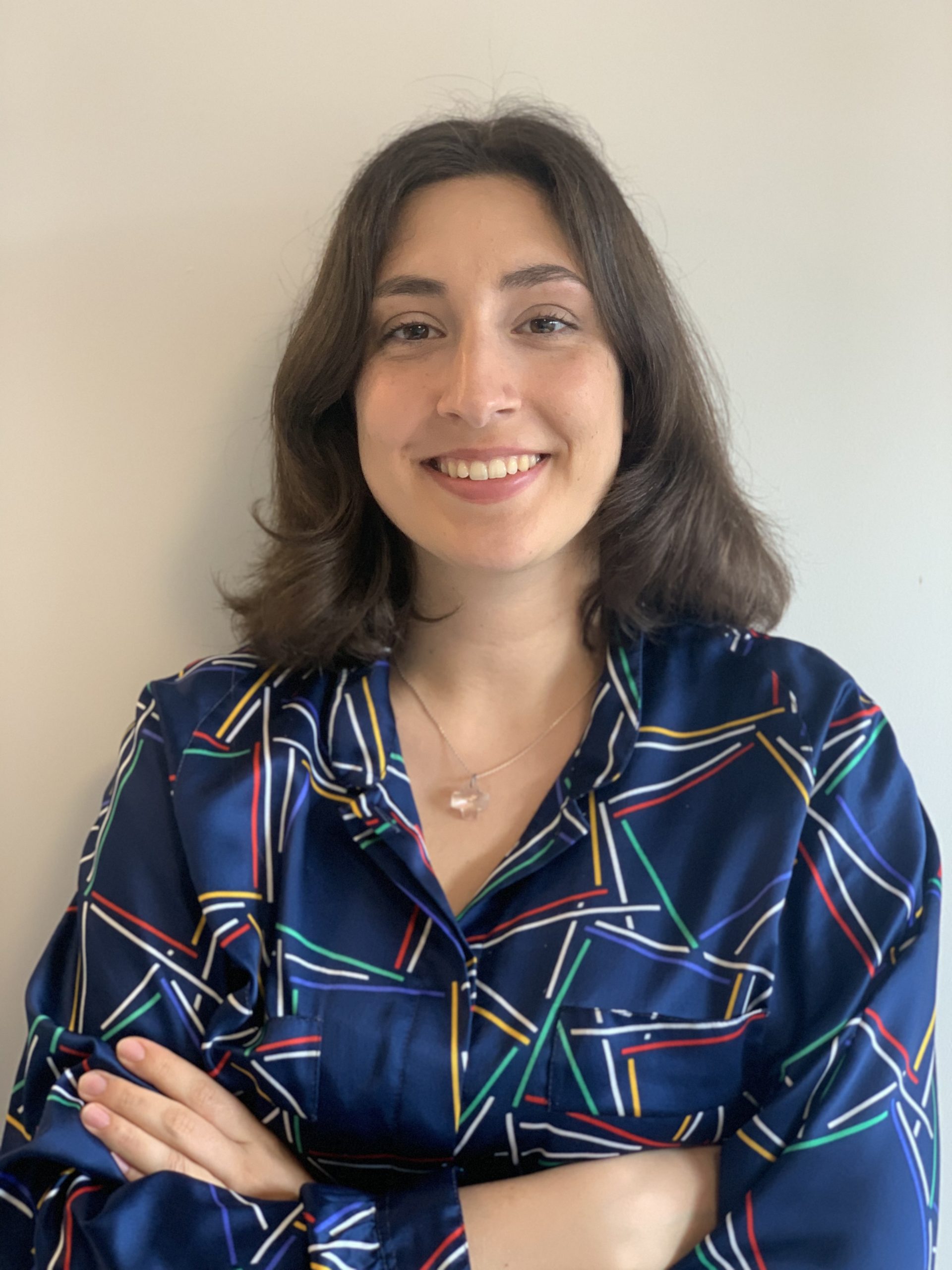 | Artemissia Vadokas Associate member since 2024 Hello! My name is Artemissia Vadokas, and I am a fourth-year medical student at the University of Heidelberg. During my time working as a nurse, I have come to understand that health concerns all of us, regardless of where we live or who we are. In a fast-progressing global world, it is important to work together and share each other´s knowledge. In Germany, as high-income-country, we have faced the burden of non-communicable diseases for many years, while in low- and middle-income countries, like Zambia, the focus often remains on infectious diseases. However, lifestyle changes and urbanization are leading to increasing cases of non-communicable diseases. The number of unidentified cases is high, and the general awareness is low. The purpose of this research project is to conduct a screening for hypertension and the metabolic syndrome in local communities in Lusaka, Zambia, to subsequently develop recommendations for risk screening strategies. Project title: Assessing cardiovascular disease risk and metabolic syndrome in communities in Lusaka, Zambia Supervisor(s): Dr. Andreas Deckert, PD Dr. Valérie Louis Institutional affiliation: Heidelberg Institute of Global Health |
 | Paula Latkovic Associate member since 2024 Hi everybody! My name is Paula Latkovic and I am a 5th-year medical student at the University of Heidelberg. My interest in Global Health has been one of the reasons for me to go into medicine, which is why I spend two months of my nursing internship in a hospital in Cairo. This gave me the opportunity to gain fascinating insights into a non-european health care system. Post-graduation, I aspire to specialize in Plastic and Reconstructive Surgery and work with an organisation like Doctors Without Borders. My research project aims to unterstand the referral system of hypertensive patients in Zambia. The objective is to map the patient flow in a representative community in Lusaka and use the data to suggest improvements to the referral system. Since in Zambia the mortality due to hypertension and related medical conditions has been increasing for years, I hope to provide tangible help. Project title: Improving referrals and monitoring of hypertensive patients in communities in Lusaka, Zambia Supervisor(s): Dr. Andreas Deckert, PD Dr. Valérie Louis Institutional affiliation: Heidelberg Institute of Global Health |
 | Hannah Kawka Associate member since 2024 Hello everyone! My name is Hannah Kawka and I studied medicine at the University of Heidelberg and have now worked in a hospital for almost two years. During your studies you mainly deal with the basics of a disease like symptoms or therapy, whereas in everyday working life you are suddenly confronted with the economic component of a disease. Hypochondria is familiar to every doctor, but little attention is paid to the disease. This is despite the fact that it represents a burden on our healthcare system due to frequently unnecessary doctor visits and examinations. From my own experience, I know that doctors often lack the time in their daily work to deal with these patients, so that examinations are nevertheless authorised. I have therefore focussed my research on this topic and hope to contribute to a better understanding of the economic burden of illness. Project title: The Economic Burden of Hypochondriasis – A systematic review Supervisor(s): PD Dr. Olaf Horstick, Dr. Peter Dambach Institutional affiliation: Heidelberg Institute of Global Health |
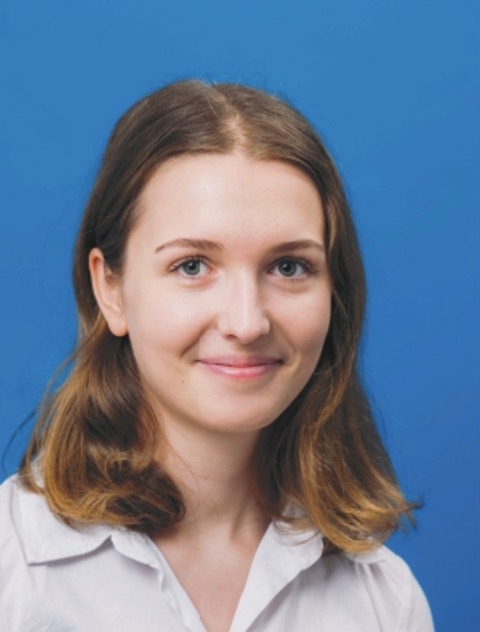 | Glenna Walther Associate member since 2024 Hello! My name is Glenna Walther, and I just graduated from the international programme in medicine at the Medical University of Varna, Bulgaria. While studying, I developed a profound interest in global health, especially the area of health disparities and prevention. Health equity is still a scarce commodity in our current world. It has become more important than ever, to understand the causative and risk factors associated with the occurrence of specific diseases. This is why I am very exited to be conducting research on the topic of the disparity of cardiovascular disease occurrence in the German autochthonous population compared to individuals with a migration background. Project title: Comparison of ethnic German immigrants with the autochthonous German population with regard to prevalent cardiovascular diseases and their risk factors Supervisor(s): Prof. Dr. Heiko Becher; apl. Prof. Dr. Volker Winkler Institutional affiliation: Heidelberg Institute of Global Health |
| 2023 | |
 | Clara Bergmann Associate member since 2023 I am a third-year medical student at the University of Heidelberg. Ever since I watched the documentary “Cowspiracy” as a teenager, I was interested in the intersection of diet, environmental sustainability and global health. My doctoral project, imbedded in the RODAM Study, focuses on the associations between optimized diets and CVD risk factors (type 2 Diabetes, hypertension, obesity) in Ghanaian adults, that could explain their heightened incidence and mortality rates. I will also work for the COhort study on PLANT-based diets (COPLANT). This multicentric cohort study aims to analyze the long-term effects of plant-based diets on health and environment in Germany. Project title: Associations of sustainable diets with cardio-metabolic conditions among Ghanaian adults under transition Supervisor(s): Prof. Dr. Ina Danquah Institutional affiliation: Heidelberg Institute of Global Health, German Cancer Resarch Center |
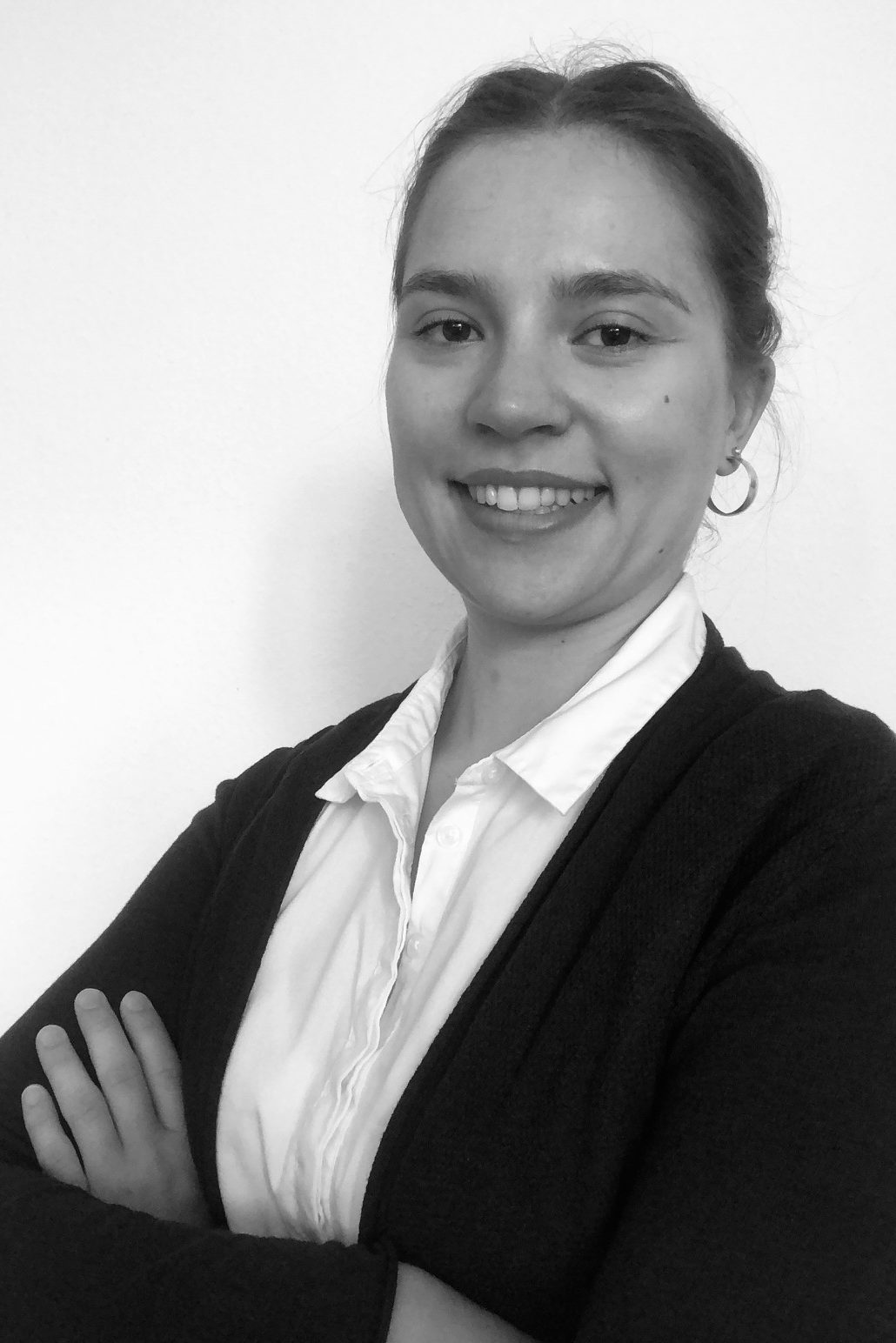 | Janina Klein Associate member since 2023 My name is Janina Klein and I am a fourth year medical student in Heidelberg. In my opinion, vaccinations are one of the most important preventive measures to promote health, not only on an individual level, but also on a societal level. My interest in vaccinations started in South Africa in 2019, when I saw how important vaccinations are for health care there. I wondered why there was criticism or hesitation about vaccinations in Germany. That’s why I’ve been involved in the “Get vaccinated” working group since 2021. This working group of medical students uses evidence-based education to inform students about the immune system and vaccinations. Only those who are well-informed and educated can make informed decisions about vaccination. The aim of my research project is to investigate whether an interactive lecture given by students can increase knowledge about vaccination and willingness to be vaccinated among children and adolescents. Project title: Importance of student’s education lectures on vaccination in schools – Assessment of vaccination knowledge and willingness to get vaccinated (focus on HPV) Institutional affiliation: Heidelberg Institute of Global Health, German Cancer Resarch Center |
 | Lisa-Maria Lamkemeyer Member since 2023 Hello everyone. I am Lisa-Maria Lamkemeyer (she/her), dentist, medical student, research associate at the Institute of Global Health (project: PlaN-Med) and doctoral student (working group: Climate-Smart Health Systems/ KliOL). I am very passionate about the working field of Global Health and plan to align my career in this field with a special interest in Climate Change mitigation and adaptation. Therefore, I am very happy about the outstanding opportunity to be part of the Heidelberg Graduate School of Global Health. In my doctoral thesis I aim to investigate the willingness to switch inhalers by patients who currently use a metered dose inhaler (which propellants are heavy greenhouse gases) and for whom a switch to a dry powder inhaler is not considered critical. In addition, it is to be found out whether different communication strategies influence the willingness to switch to a different inhaler. Furthermore, an exact Life Cycle Assessment of inhalers at Heidelberg University Hospital is to be calculated and the saving potential of emissions to be shown. Through my research project, I intend to become a part of the process of modelling paths to a future of green hospitals. Project title: Patient:innenzentrierte Aufklärung bei der klimasensiblen Verschreibung von Inhalatoren: eine quantitative Befragung Supervisor(s): PD. Dr. Shannon McMahon, Dr. Alina Herrmann Institutional affiliation: Heidelberg Institute of Global Health |
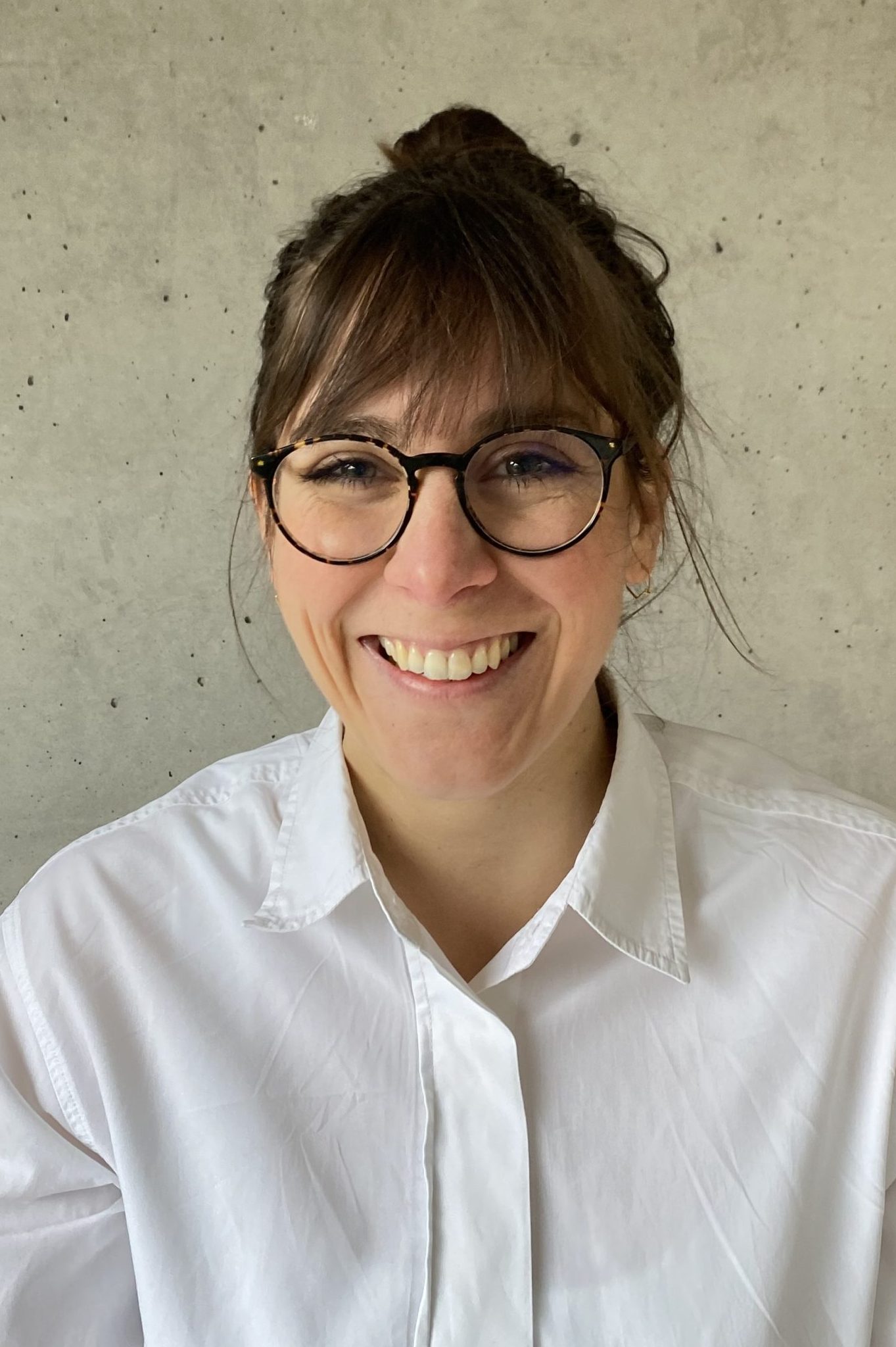 | Marie Kurtz Associate member since 2023 Hello everyone! My name is Marie Kurtz and I studied medicine at the Medical School of Split in Croatia in an international program. While working in internal medicine after completing my studies in human medicine, I gained more and more interest in the prevention of diseases. In my opinion the study of global health is one option to study “the bigger picture” of diseases and later develop preventive strategies with that knowledge. Emotional abuse is a less visible and therefore often underrepresented form of abuse in research, moreover often studies in low-income countries like Sub-Saharan Africa are also underrepresented. This is the reason why I decided to focus my research on this topic. Project title: The Prevalence of Emotional Abuse in Children living in Sub-Saharan Africa – A systematic review Supervisor(s): PD Dr. Olaf Horstick, Dr. Peter Dambach Institutional affiliation: Heidelberg Institute of Global Health |
 | Katharina Westphal Member since 2023 My name is Katharina Westphal and I am 5th year medical student at the University of Marburg. Alongside my medical studies, I started a Bachelor’s degree program in nutrition science at the University of Gießen. The link between health and nutrition has been fascinating me for a long time. What I find most interesting about it is the vast potential in preventive medicine which nutrition could offer but only rarely exploits Climate change is expected to have a large impact on the nutritional situation and food security in Sub-Saharan Africa. Rising temperatures, weather extremes and alteration in rainfall patterns will impair the ability to grow traditional crops and cultivate livestock. Diversification and alteration in the agricultural sector are possible adaptation strategies do diminish the impact of climate change. Inevitably, this also requires changes in the dietary patterns of the population. For my research project I aim to model possible diets for a cohort of 600 young children in a rural area of Burkina Faso. These diets should not only be more resistant to climate change but also nutritionally adequate, financially affordable and culturally acceptable. Thereby, I hope to contribute to giving recommendations in the field of Public Health Nutrition for a rural area in Burkina Faso. Project title: Diet optimization for young children in rural Burkina Faso Supervisor(s): Jun.-Prof., PD, Dr. Ina Danquah Institutional affiliation: Heidelberg Institute of Global Health |
 | Johanna Kröger Member since 2023 Johanna Kröger is a fifth year medical student at the University of Münster and graduate from the MSc. Global Health programme at Maastricht University in the Netherlands. To her, Global Health is about understanding the complex and interconnected factors that influence health and well-being in today’s globalised world. She has a strong interest in the social and political determinants of health and in promoting health equity. During her master’s degree she completed an elective track at McMaster University in Canada, where she focused on global governance and health policy. A research stay at the Institute for Global Health in Barcelona has further allowed her to follow her passion for planetary health and to work at the interface of climate change and health in urban settings. In her dissertation, Johanna investigates the relationship between educational polices and health outcomes in South Africa. More specifically, her research project aims to estimate the causal effect of school-entry age on sexual and reproductive health among South African women. While the effect on health and well-being is widely studied in high-income countries, little is known about the impact of school-entry age policies on health in low- and middle-income countries. Findings bear important implications for educational policies in South Africa, where the national school system faces many challenges till this day. Project title: The causal effect of school-entry age on women’s sexual and reproductive health in South Africa Supervisor(s): Prof. Dr. Dr. Till Bärnighausen, Prof. Dr. Annelies Wilder-Smith, Dr. Dr. Jan-Walter De Neve Institutional affiliation: Heidelberg Institute of Global Health |
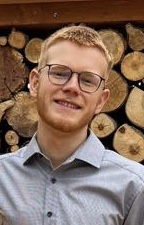 | Paul Lüdicke Member since 2023 My Name is Paul Lüdicke. I’m a fourth-year medical student at the University of Heidelberg. Global Health is fascinating me because of the benefit it may give to many people. Especially the ones not having been in the focus of scientific research or healthcare industry before. My research doesn’t aim at improving healthcare in foreign countries, but rather for foreigners in our own country. Project title: Quantification of the existing gap in cancer prevention among the various groups with a migration background compared to the autochthonous population Supervisor(s): apl. Prof. Dr. sc. hum. Volker Winkler Institutional affiliation: Heidelberg Institute of Global Health |
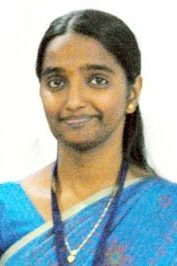 | Sudharshini Subramaniam Associate member since 2023 I am Sudharshini Subramaniam, a medical doctor by training, currently working as a medical teacher and a public health expert at Madras Medical College, one of the oldest and most renowned medical teaching institutes in India. I propose to do a study on Caste and gender differences in the adoption of self-management behaviours among patients with Type 2 Diabetes – an intersectional analysis.The motivation for conducting a research study on the influence of caste and gender on adoption of diabetes self-management behaviours, comes largely from my work experience at RUWSEC the Rural Women’s Social Education Centre (RUWSEC), a rural Non Governmental Organization, where I work and my personal experiences of abiding by or fighting against various caste and gender norms in my life. The caste system in India organizes people into a rigid social hierarchy in which the ‘lower castes’ also known as scheduled castes, are often marginalized and discriminated. They have poor access to health care services. In villages where I work, till date the scheduled castes live in segregated colonies with poor resources. Access to diabetes treatment and diabetes related healthy behaviours are also limited to these people. The complex interaction intersection of caste and gender will is likely to have a multi-foldcomplex influence on the adoption of self-management practices. I am motivated to study this intersection of caste and gender in adoption of self-management behaviour, because, I think with a detailed understanding of this phenomenon, I will first be able to develop an advocacy and communication program for gender and caste inclusive and sensitive behaviour change for diabetes. I will then be able to scale this up for a national level advocacy insisting on a gender and caste sensitive diabetes care policy for the nation. Project title: Caste and gender differences in the adoption of self-management behaviours among patients with Type 2 Diabetes – an intersectional analysis Supervisor(s): Jun.-Prof. apl. Prof. Dr. Volker Winkler Institutional affiliation: Heidelberg Institute of Global Health |
 | Dorothee Liu Member since 2023 My name is Dorothee Liu, I am a fifth-year medical student at the University of Heidelberg. After exploring different fields of clinical care in the last years, I am now shifting my perspective towards seeing the “bigger picture” of health and exploring connections between medicine and other areas of society. What attracts me so much about the field of global health is its emphasis on disease prevention and health promotion across national boundaries. I am passionate about finding ways to improve health and wellbeing especially amongst vulnerable populations, sometimes through interventions that are at low cost but highly effective. My main research project aims to develop sustainable diets in urban Burkina Faso, a region where undernutrition and obesity coexist among the population and the effects of climate change are threatening food security and human health. Developing public health measures that support the transformation towards a more sustainable diet that is healthy as well as environmental-friendly, affordable and culturally acceptable can be an important strategy when facing these nutritional and environmental challenges. Additionally, I am involved in the planning and implementation of the COPLANT study (Cohort on PLANT-based diets), a multicentric cohort study that aims to analyze the long-term effects of plant-based diets on health and environment in Germany. Project title: Optimization modelling to identify sustainable diets for adults in Ouagadougou, Burkina Faso Supervisor(s): Jun.-Prof. PD Dr. Ina Danquah Institutional affiliation: Heidelberg Institute of Global Health |
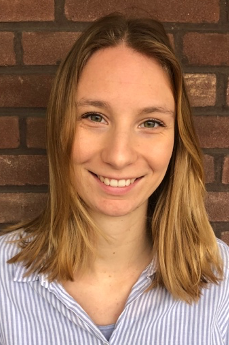 | Maike Makena Platz Pereira Member since 2023 I am a fifth-year medical student in Münster and have a special interest in the sociopolitical spheres of health since the beginning of my medical studies. Experiencing different cultures and systems during my travels and internships in Brazil, Uganda, and Papua New Guinea gave me a broader perspective of what “health” means for societies and the individual. Therefore, I am happy to engage myself in Global Health by investigating my research project, absolving courses, and connecting with like-minded people. My research project aims to better understand the risk factors that lead to poor (mental) health conditions and health-related quality of life for Asylum seekers in Germany. Specifically, the potential risk factor of change of subjective social status (due to the migration process), will be observed in relation to several health outcomes. Given the high number of refugees and asylum seekers in Germany (in the past, currently, and to be expected in the future), and the societal need to integrate people into the society effectively, a deeper understanding of any health effects of social mobility opens management opportunities both on the side of (perceived) social status and on health. Project title: Health effects of migration-related change of social status – a cross-sectional study among Asylum Seekers in Germany. Supervisor(s): Prof. Dr. Med. Kayvan Bozorgmehr Institutional affiliation: Department of General Practice and Health Services Research, Section Health Equity, Heidelberg University |
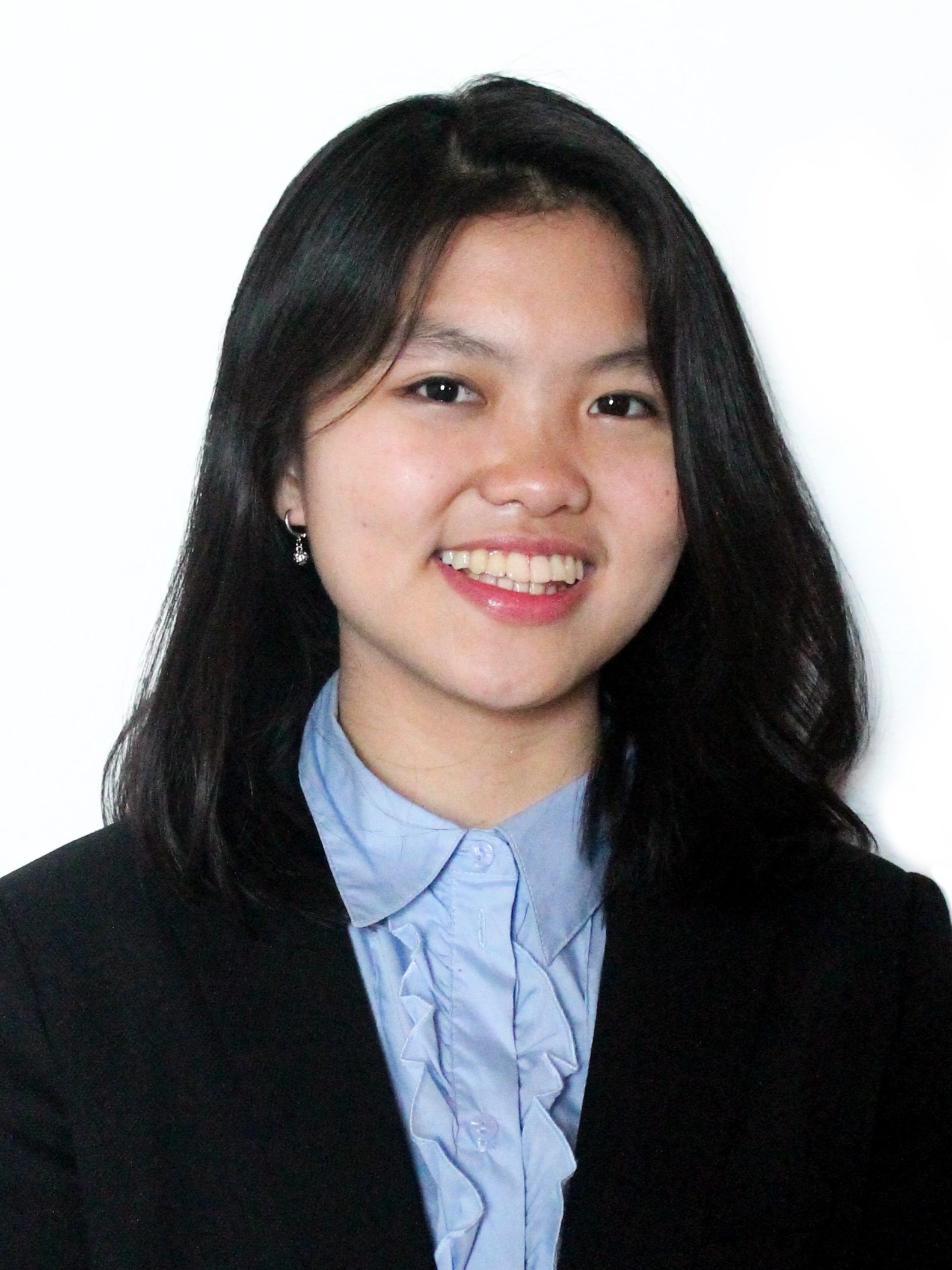 | Patricia Mary Elizabeth Member since 2023 I am Mary, a fifth-year medical student at Heidelberg University. After experiencing two different health systems in Indonesia and then in Germany, I want to contribute to improving Indonesian healthcare as well as health awareness. Since Indonesia is the largest Muslim-majority country, Ramadan is a relevant, yet sensitive topic. Through my research focusing on long-term health outcomes of in utero Ramadan exposure, I hope it may make people more aware of this topic and help them make an informed decision. Project title: In utero Ramadan exposure and long-term health outcomes Supervisor(s): apl. Prof. Dr. Volker Winkler, Melani Ratih Mahanani, MD, MScIH Institutional affiliation: Heidelberg Institute of Global Health |
| 2022 | |
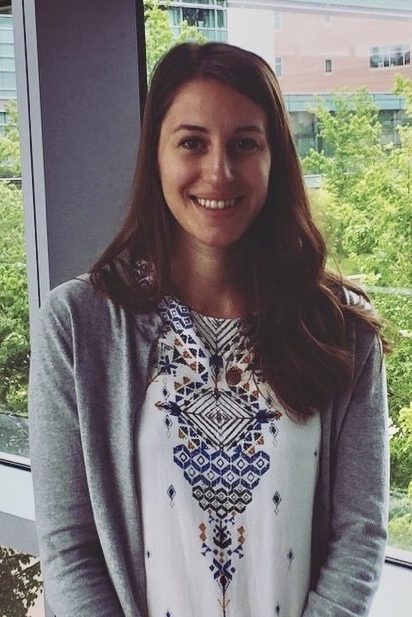 | Kira Elsbernd Associated member since 2022 I am a third-year doctoral candidate studying Epidemiology at Ludwig Maximilians University’s departments of Infectious Diseases and Tropical Medicine and Institute of Medical Information Processing, Biometry, and Epidemiology (IBE). I have worked in infectious disease research in low- and middle-income countries since the beginning of my Masters studies and enjoy the challenge of understanding and improving complex interventions and systems of health care delivery in resource-poor environments. My doctoral project, embedded in the LIFE Study, focuses on the economic evaluation of early diagnosis and treatment of infants with HIV with the aim of informing decision makers on the design of HIV early infant diagnosis programs in Mozambique, Tanzania, and similar settings. Project title: Costs and cost-effectiveness of neonatal HIV early infant diagnosis (EID) compared to standard of care EID in Mozambique and Tanzania Supervisor(s): Prof. Dr. med. Michael Hölscher, Dr. med. Arne Kroidl, Prof Till Bärnighausen Institutional affiliation: Division of Infectious Diseases and Tropical Medicine, Ludwig Maximilians University Medical Center |
 | Valentin Sauter Member since 2022 Valentin is a recent graduate of Medicine and Physics from Heidelberg University. His fascination with cultures and languages has led him to enjoy a number of research and study periods abroad. Clinical placements in Rwanda, Iran and Sudan in particular have further focused his attention on challenges of global health. One such challenge with pressing importance for the 21st century is the rise of non-communicable diseases in low-and-middle-income countries. In his MD research project, he draws from both of his degrees to help our understanding of such dynamics through unsupervised machine learning. Project title: Identifying clusters of biological and behavioural health risk factors for cardiometabolic diseases in low-and-middle-income countries through unsupervised machine learning system Supervisor(s): Prof Till Bärnighausen , Prof Joacim Rocklöv Institutional affiliation: Heidelberg Institute of Global Health |
 | Philine Naber Member since 2022 My name is Philine Naber and I am a fifth year medical student at the University of Cologne with a special interest in gynecology. The Covid19 pandemic has once again demonstrated that health challenges may no longer be considered far away issues and can only be met on the basis of internationally networked medical research with the pooling of financial and human resources across national borders. It is from this conviction that I am pursuing an academic career in Global Health. Cervical cancer is a preventable and potentially curable gynecological disease if detected in the early stages of disease progression. 90% of cervical cancer deaths occur in low-income and middle-income countries with limited resources for prevention and screening. In Cambodia cervical cancer is the third leading cause of cancer deaths in women. The currently used screening method in Cambodia is the visual inspection of the cervix with acetic acid. Superior screening methods are emerging which will undergo further investigation in my research. Project title: Effectiveness analysis and economic evaluation of a modified program for cervical screening in Cambodia assisted by a cloud-based digital system Supervisor(s): Dr. Andreas Deckert, Magnus von Knebel-Doeberitz, Hermann Bussmann Institutional affiliation: Heidelberg Institute of Global Health |
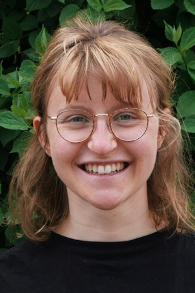 | Laura Felice Harrison Member since 2022 The dream of a world in which the Sustainable Development Goals are implemented motivates me to become a doctor and to do my best in voluntary work. In parallel to my medical studies at Münster University, I have worked in an initiative that supports health care for refugees in Greece, as well as at ‘Impact Münster’ a group that organizes social events for people with and without refugee or migrant background. Furthermore, I am active at ‘Health for Future’ and ‘BUNDjugend’ in the areas of sustainable climate policies, global health and migration. As can be clearly observed in migration patterns, as well as in the rise of heat deaths, climate change is already impacting the lives of millions of people worldwide. Mitigating climate change and the health risks it encompasses is a medical and large-scale social issue. Therefore, as health professionals it is our responsibility to take every necessary step to mitigate climate change. My research in the KliOL project aims to develop a sustainable and healthy nutrition intervention at the UKHD and measure its effects on greenhouse gas emissions using a bottom-up calculation. Furthermore, I will evaluate the effects of this intervention on physical and mental well-being and on individual nutrition patterns using quantitative and qualitative outcome analyses. For the research on mental well-being, I will also draw from the experience I have gained working in the FOR2107 study. Project title: Co-design and implementation of measures for sustainable food supply at Heidelberg University Hospital: Reducing emissions and producing health benefits Supervisor(s): Jun.-Prof. PD Dr. Ina Danquah Institutional affiliation: Heidelberg Institute of Global Health |
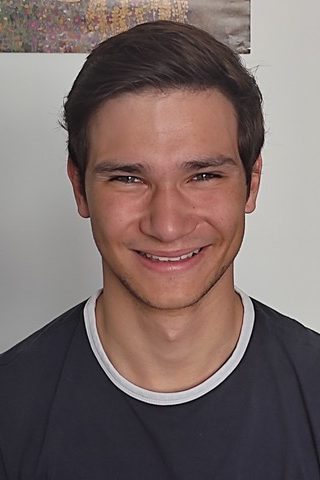 | Sebastian Bott Member since 2022 My name is Sebastian Bott, and I am a fifth-year medical student at the University of Heidelberg. Experiencing different health care systems in countries across the globe, as I did during my internships in Ghana and Brazil, deepened my already existing interest in Global Health. Therefore, I am very much looking forward to researching in the field of global health, gaining knowledge about other projects in the Heidelberg Graduate School and making contact with like-minded people. The goal of my project is to assess the acceptance and feasibility of a home-based self-sampling campaign for HPV as a method of cervical cancer screening in rural areas in Cambodia. As cervical cancer is one of the main issues for women’s health in lower- and middle-income countries, knowledge about perceptions of and barriers to screening can help develop screening strategies, programs, and future research studies. Project title: Uptake and Acceptance of HPV self-sampling in local communities in Cambodia Supervisor(s): Dr. Andreas Deckert, Magnus von Knebel-Doeberitz, Hermann Bussmann Institutional affiliation: Heidelberg Institute of Global Health, Institute for Pathology Heidelberg |
 | Zoe Lichnock Member since 2022 My name is Zoe and I am a 5th year medical student in Heidelberg. During the COVID 19 pandemic, I started to get more and more involved in the field of public health. I was lucky to be part of a research group within the “Netzwerk Universitätsmedizin” (NUM), implementing strategies for surveillance and testing. But after two years of this pandemic, I ask myself: What will we learn from this? Health care systems around the world are now at a moment of maximal capacity for and knowledge of virus containment strategies. An unfortunate corollary of this accumulated knowledge is also that we risk losing that stock again as the world moves on from the pandemic experience. However, my interest in public health is not limited to the current pandemic situation. As a future doctor, it is important for me to keep the “bigger picture” in mind. Medicine will always be about the individual. But in the 21st century, I think medicine and medical practice can no longer be about the individual alone as we live in an increasingly complex social network. We influence each other; the health of the collective influences the well-being of the individual and vice versa. Project title: Risk-stratified self-testing for COVID-19 among employees in Switzerland: Review of a complex public health intervention in response to the COVID-19-pandemic. Supervisor(s): Dr. Andreas Deckert Institutional affiliation: Heidelberg Institute of Global Health |
 | Sara Schiavone Member since 2022 Hello everyone! My name is Sara Schiavone. I’m an Italian medical doctor specialised in Hygiene and Preventive Medicine. I am really interested in understanding the various aspects of health in different countries. My research proposal includes exposure to second-hand smoke and methods to quit smoking. Unfortunately, tobacco still remains among the main causes of preventable diseases and I strongly believe that research can do so much globally to try to standardise protocols and ensure the best possible health for every person. Project title: From smoke-free legislation to quitting tobacco: a global analysis of tobacco control measures Supervisor(s): apl. Prof. Volker Winkler Institutional affiliation: Heidelberg Institute of Global Health |
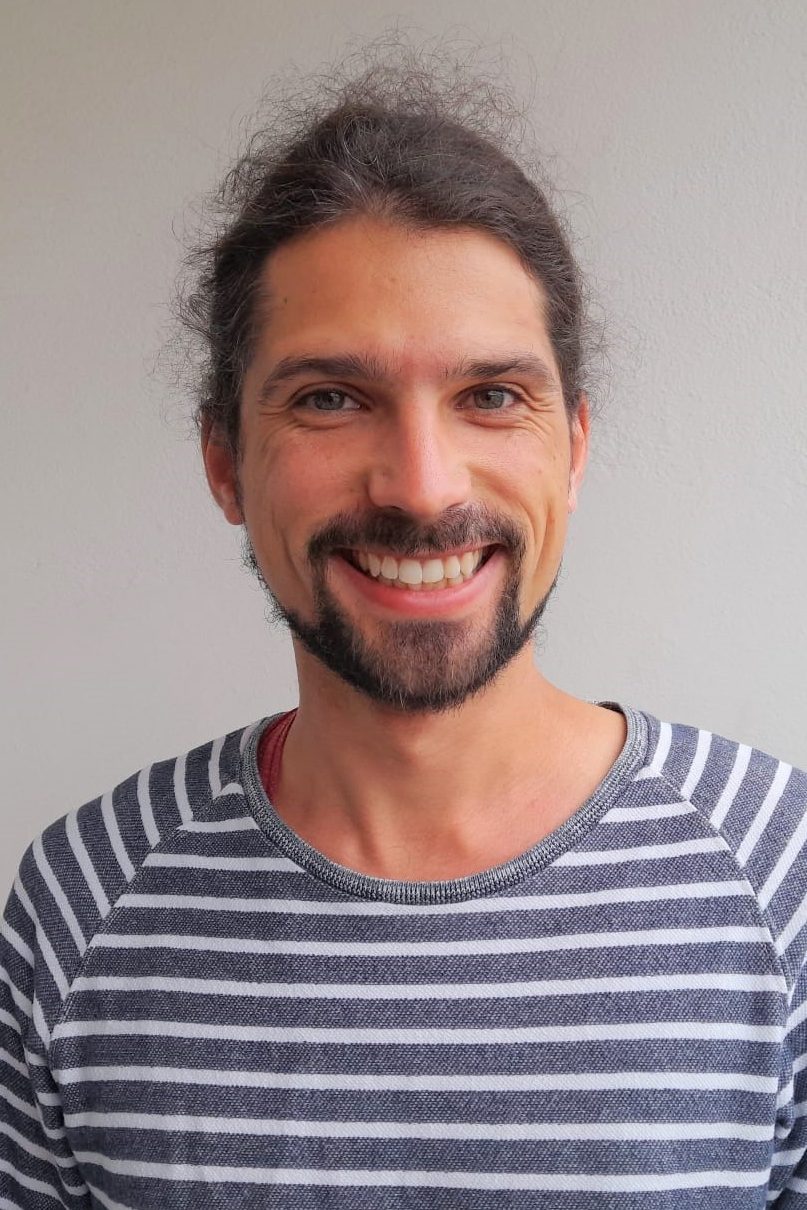 | Louis Noël Schäfer Member since 2022 My Name is Louis Schäfer and I’m currently studying medicine and sociology at the university of Marburg, Germany. I am also participating in the ‘focus curriculum’ global health at the university of Giessen. I share a big interest for global health and health sociology, especially concerning social and economic inequalities, heath literacy, planetary health, and access to health care. In 2022, I became a doctoral student at the Heidelberg Institute of Global health to take part in an endline assessment studying an intervention with Mobile Maternal Health Wallets based on Mobile Money in Madagascar. As part of the interdisciplinary team, my research will focus primarily on motivations, meanings and the decision-making processes regarding the registration comparing doers and non-doers. The study aims to contribute to the further development of the project and therewith, hopefully increasing access to healthcare and avoiding people experiencing catastrophic healthcare expenditure on the long term. Project title: Who registers for a Maternal Health Wallet based on mobile money and who doesn’t? A doer/non-doer analysis as part of the 4Mothers trial in the Analamanga region, Madagascar Supervisor(s): Dr. Shannon McMahon Institutional affiliation: Heidelberg Institute of Global Health |
 | David Grossman Member since 2022 My Name is David Grossmann and I am a fifth year medical student at the University of Freiburg. For several years now, I am interested in global health topics and the large-scale mechanisms that influence the wellbeing of populations. Especially my voluntary year after school had a long-lasting impact on me. There, I had the chance of working with people and disadvantaged populations that got effected by industrial pollution and corporate violation, oftentimes suffering from resulting health conditions. It became apparent to me that health is often a complex interplay of factors outside the medical sector itself (such as urban planning, poverty, climate change or migration), and less, or certainly not only a narrative of individual responsibility and individual risk factors that play a role in the etiology of diseases and suffering. As the global burden of disease shifts more and more towards chronic non-communicable diseases (CNCDs), these conditions put a huge strain on societies and individuals, both physically and financially. Especially poor people in low- and middle-income countries are imposed to a huge risk of declining welfare, as required medical procedures can take up a larger part of their already limited resources. In my project, we look at these health care expenditures of individuals with CNCDs in India. We try to understand how these individuals seek care and how much of a financial burden their condition is within the context of the Pradhan Mantri Jan Arogya Yojana (PM-JAY), a newly implemented government-funded health insurance scheme. Project title: Health-seeking-behaviour and out of pocket expenditure for NCDs among PM-JAY eligible individuals in seven states in India. Supervisor(s): Prof. Dr. Manuela De Allegri , apl. Prof. Volker Winkler , Swati Srivastava Institutional affiliation: Heidelberg Institute of Global Health |
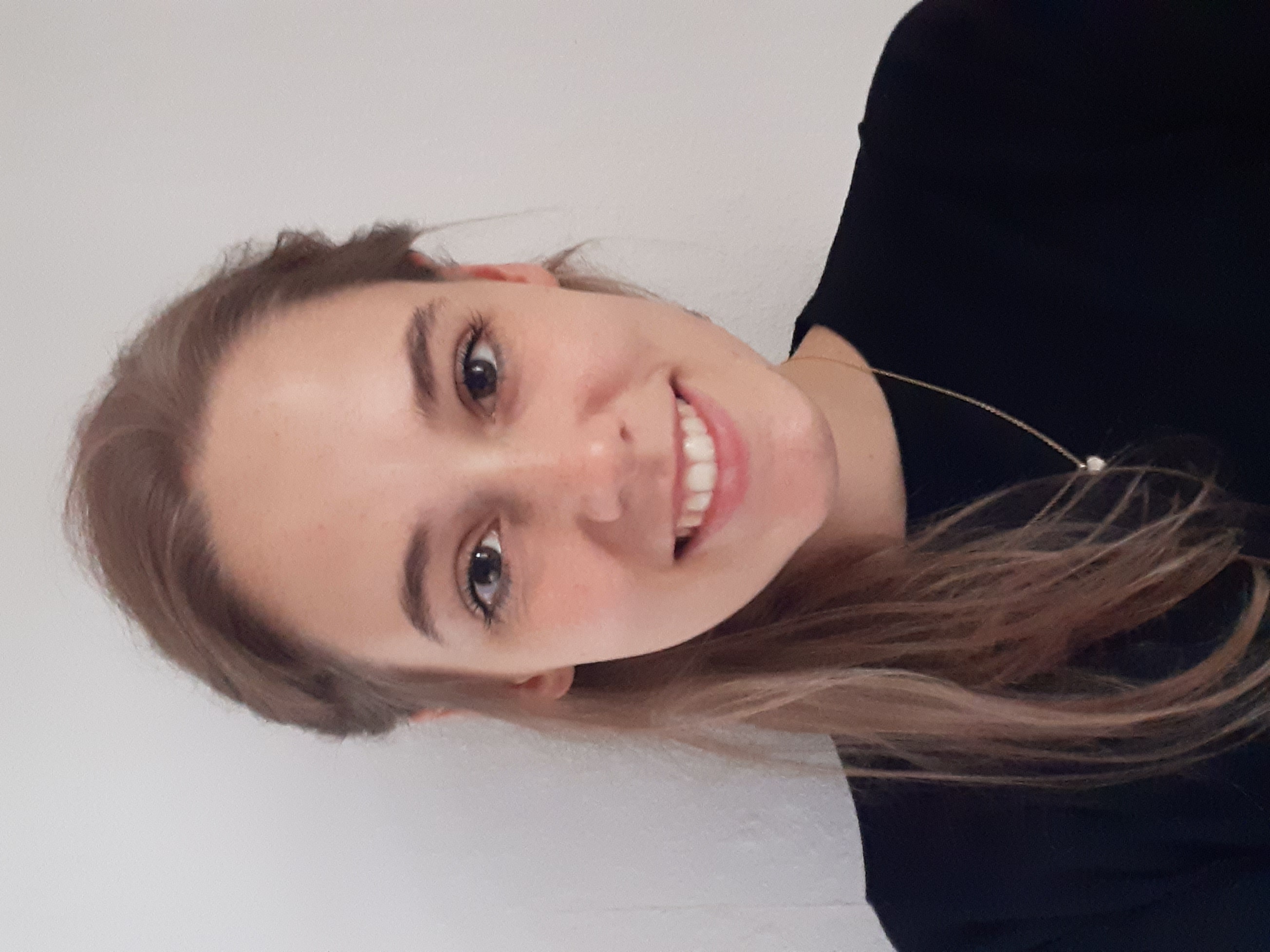 | Josephine Schwab Member since 2022 I am a fifth-year medical student at the University of Heidelberg and to me, especially in our age, it seems only logical to focus on the state of health around the world. The field of Global Health provides the opportunity to learn and understand more than would ever be imaginable in one country or health system. In this context, the interdisciplinarity and collaboration that Global Health offers is, in my opinion, the only solution to ensuring that everyone worldwide has fair access to health care. I am particularly interested in the wave of change that is currently sweeping the world through digitalisation. Digital medicine and mHealth can and must be used at all levels of health systems to create more equitable and far-reaching health care globally. That is why I am excited to work on a project concentrating on the acceptability, feasibility, and usefulness of novel mHealth approaches and drawing on the tenets of Human-Centered-Design, therefore working closely together with the people and local experts who are affected by and knowledgeable about these interventions. Project title: Human-centered design to adapt and inform an integrated chronic disease management program in Uganda using mobile payment services. (Acronym: IMPEDE CVD) Supervisor(s): PD Dr. Med. Olaf Horstick , Dr. Shannon McMahon Institutional affiliation: Heidelberg Institute of Global Health |
 | Nicola Krippl Member since 2022 Me conducting research in the field of Global Health is a very evident consequence of my previous academic and professional experiences. Its thematic focus on climate change and health communication in patient counselling unites many of my interests and includes valuable knowledge I already gained. I am Nicola Krippl, a fifth year medical student from Mannheim, holding a B.A. in Political Science. I have a keen interest in societal impacts of climate change and climate change communication. Furthermore, I am convinced that the integration of climate change and health and their potential (health) co-benefits in the patient doctor interaction is a crucial research field where evaluated concepts are urgently needed. Consequently, my research project aims to provide a practical guide on how health professionals can address climate change in patient counselling. Therefore I am working on a quantitative study with the aim to reveal the general public’s preferences regarding topics and communication methods of climate-sensitive health counselling and to characterize how socioeconomic characteristics and climate change attitudes are associated with these preferences. Project title: Climate-sensitive health counselling: addressing climate change in physician-patient-interaction – a quantitative survey on the general public’s experiences and expectations” Supervisor(s): Jun.-Prof. PD Dr. Ina Danqah , Dr. med. Alina Herrmann Institutional affiliation: Heidelberg Institute of Global Health, Heidelberg University Hospital |
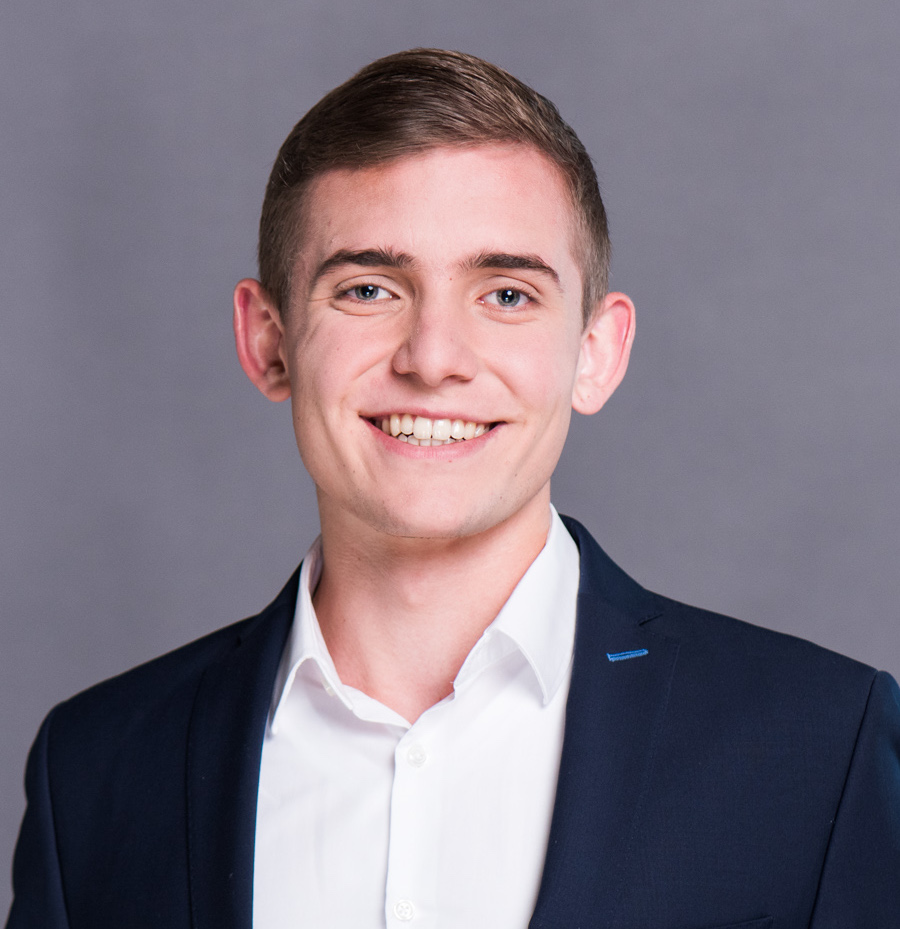 | Lukas Brümmer Member since 2022 How can we improve the health of as many people as possible, with only limited resources being available? This question presents one of the main challenges when it comes to reducing the spread of Tuberculosis (TB), a major cause of illness and death especially in low- and middle-income countries. Through his doctoral thesis, Lukas Brümmer aims to contribute to reducing the spread of TB, evaluating the epidemiological impact of a novel diagnostic test against its costs. Lukas started his career in finance, studying business administration in Mannheim and Ma-drid, while at the same time working for various IT and management teams of the Deutsche Bank in Frankfurt and Amsterdam. After having earned a Bachelor of Arts from the Baden-Wuerttemberg Cooperative State University (DHBW), he started to study medicine at the University of Heidelberg, where he is now in his third year. In parallel to his studies, he con-ducts research on novel diagnostics at the Division of Infectious Disease and Tropical Medi-cine (Heidelberg University Hospital), collaborating with FIND, the global alliance for diagnos-tics, and the World Health Organization. Project title: Reducing the spread of TB – impact assessment of a novel diagnostic Supervisor(s): PD Dr. Claudia Denkinger Institutional affiliation: Division of Infectious Disease and Tropical Medicine, Heidelberg University Hospital, Heidel-berg, Germany |
 | Ferdinand Beleites Member since 2022 My name is Ferdinand Beleites and I am a medical student at the University of Marburg. Public Health became interesting to me because of the fields’ enormous academical breadth and its entanglement with other disciplines. As an area of research, I found Public Health intriguing since in my opinion, it represents the quintessential study of making the world a better place. In face of the current pandemic, I am particularly fascinated by the question of how to counteract vaccine hesitancy. Hopefully, the resulting insights will provide me with a more abstract understanding for motivating people to take preventive health measures. Project title: The Effect of a Short, Animated Story-based Video on COVID-19 Vaccine Hesitancy: A Study Protocol for an Online Randomized Controlled Trial Supervisor(s): Prof. Dr. Tilman Kühn Dr. Sandra Barteit Institutional affiliation: Philipps-Universität Marburg and Ruprecht-Karls-Universität Heidelberg; Heidelberg University Hospital; Institute of Global Health |
 | Henning Schröder Member since 2022 My name is Henning Schröder and I am a graduate of the medical school of the University of Cologne and a doctoral candidate at the Heidelberg Institute of Global Health (HIGH). From early onwards, I have followed my interest in coming to know different public health care services in the world. Spending several internships at health care providers in foreign countries, I was struck by the difference in the quality of health care between high and low-income countries as well as between urban and rural areas. To learn more about public health care in rural settings and potential ways of improving conditions, I started with a study project at HIGH. Our study group investigates intergenerational spillover effects of health interventions, especially on vulnerable population groups such as children and older people in rural sub-Saharan Africa. Project title: Antiretroviral therapy coverage among working-age adults and support for older family members in times of COVID-19: A qualitative study in rural South Africa Supervisor(s): Dr. Dr. Jan-Walter De Neve Prof. Dr. Dr. Till Bärnighausen Institutional affiliation: Heidelberg Institute of Global Health |
| 2021 | |
 | Bassante Shehata Member since 2021 A medical doctor, recently graduated from Master of International Health program at the Heidelberg Institute of Global Health and DAAD scholarship holder. I have worked in Low- and Middle-income settings in addition to working closely with refugees as a medical assessment doctor for UNHCR office in Cairo, further leading to being a public health consultant for migrants to conduct COVID-19 vaccination awareness sessions -in Arabic, English and German- in Landratsamt Böblingen. My diverse cultural background coupled with my language skills; enables me to act as a catalyst for change in the field of refugees and migrants’ health. I want to qualitatively explore solutions that tackle public health issues among vulnerable populations such as refugees and migrants; to creatively harness the power of art and science to bring refugees and migrants health under the limelight and empower them to be part of the global health scene through building sustainable research partnerships with NGOs and relevant agencies. The COVID-19 pandemic has augmented the already present health inequity gap among different migrant groups; hence my project is focusing on qualitatively exploring factors affecting vaccine uptake with focus on COVID-19 vaccines among different migrant groups in Germany in collaboration with Landratsamt for Migration and refugees in the state Baden-Württemberg as part of the Project Network Preventive Medicine in Heidelberg. Project title: Exploring COVID-19 vaccination acceptance and hesitancy among migrant groups in state Baden-Württemberg? -Qualitative study Supervisor(s): Dr. Olaf Müller Kate Bärnighausen Institutional affiliation: Heidelberg Institute of Global Health, Heidelberg University Hospital |
 | Alissa Renz Member since 2021 My name is Alissa Renz and I recently graduated medical school at University of Regensburg. The fields of public and global health first piqued my interest in a class in medical school. I then had the opportunity to do a clinical internship in Rwanda, which helped strengthen my conviction that international cooperation and coordinated efforts in health care are crucial for achieving health equity in a globalized world. My research project focuses on the epidemiology of fall-related injuries in sub-Saharan Africa. Efforts to reduce the significant burden caused by infectious disease on the continent have not been matched with similar initiatives aimed at reducing injuries and injury-related disability in recent years. Along with the increasing burden of non-communicable disease, this has resulted in a triple burden requiring multidisciplinary approaches. With my project, we aim at identifying risk factors and patterns of injury as well as uncovering preventative potential. Project title: Epidemiology of fall-related injuries in sub-Saharan Africa Supervisor(s): apl. Prof. Dr. Volker Winkler Dr. Michael Lowery Wilson Institutional affiliation: Heidelberg Institute of Global Health |
 | Ina Matzke Member since 2021 My name is Ina Matzke and I am a medical student at the University of Heidelberg. Right from the beginning of my studies, my interest in Global Health was aroused through my involvement in the student association Universities Allied for Essential Medicines (UAEM). I had the opportunity to get to know many impressive projects and actors from different areas of Global Health, which strengthened my motivation to be part of the research in this field myself, especially of the research focusing on climate change. I am currently writing my Dr. med. thesis in the research unit “Climate Change and Health in Subsahara Africa”, investigating the feasibility and acceptance of consumer-grade wearable devices for measuring health parameters in the low-resource context of the Siaya Health and Demographic Surveillance System (HDSS) in Kenya. I specifically aim to measure health data affected by extreme weather events that are likely rising as an effect of climate change. Project title: Feasibility and Acceptance of measuring health data using consumer-grade wearable devices in the low-resource context of the Siaya HDSS, Kenya Supervisor(s): Dr. Sandra Barteit PD Dr. Peter Dambach Institutional affiliation: Heidelberg Institute of Global Health |
 | Nora Schröder Member since 2021 My name is Nora Schröder and I am a third-year student of medicine and the “Global Health and Care” programme at the University of Würzburg. Health is a fundamental right. Already in the Alma-Ata Declaration of 1978, health was expressed to be “essential to sustained economic and social development and contributes to a better quality of life and world peace“. This became my personal motivation, and I set myself the goal to question and treat health issues in a planetary context and to become active in the field of global health. Since April 2020 I have been working at the German Leprosy and Tuberculosis Relief Association (DAHW) as part of the #SmartDevelopmentHack Audiopedia project. The aim of this project is to provide audio educational content on important health topics such as NTDs, tuberculosis or WASH in local languages for people worldwide. My main interest lies in leprosy prevention as it is highly challenged by stigma and discrimination associated with late detection. In my research project we aim to investigate the impact of the Audiopedia project on perceptions, knowledge, attitudes and practices towards leprosy in Togo. Project title: Impact of a globally developed audio-delivered intervention on perceptions, knowledge, attitudes and practices towards leprosy: a mixed-methods study in Togo. Supervisor(s): PD Dr. Dr. Thomas Jänisch Prof. Dr. Dr. Till Bärnighausen Institutional affiliation: Heidelberg Institute of Global Health, German Leprosy and Tuberculosis Relief Association (DAHW) |
 | Mara Koch Member since 2021 My name is Mara Koch and I am a medical student at the University of Heidelberg. Global Health has been an increasing interest of mine since I started the clinical part of my studies. After taking part in lecture series and short courses, I wanted to dive deeper into the topic as a doctoral student at the Global Health Institute. Since the topic of climate change and its consequences is one that I passionately engage with outside of my educational life, it was only fitting to combine my interests for my doctoral project. Health implications and exposure of climate change are mostly researched in high- and middle-income countries and often the continuous effects are not captured in the studies. Wearable electronic devices are increasingly used in medical research and are a low-cost and easy-to-use method to conduct health data in low-and-middle-income countries as well as capture the real-time-effects of for example extreme temperatures. Therefore, we want to use “wearables” to study the effects of heat, humidity and precipitation on heart rate, sleep and activity of study participants in Nouna, Burkina Faso. My dissertation project is part of a bigger project from the DFG Research Unit Climate Change and Health in sub-Saharan Africa. Project title: Sensor-based wearable devices for population-based climate change and health research in Burkina Faso, Africa Supervisor(s): Dr. Sandra Barteit PD Dr. Peter Dambach Institutional affiliation: Heidelberg Institute of Global Health |
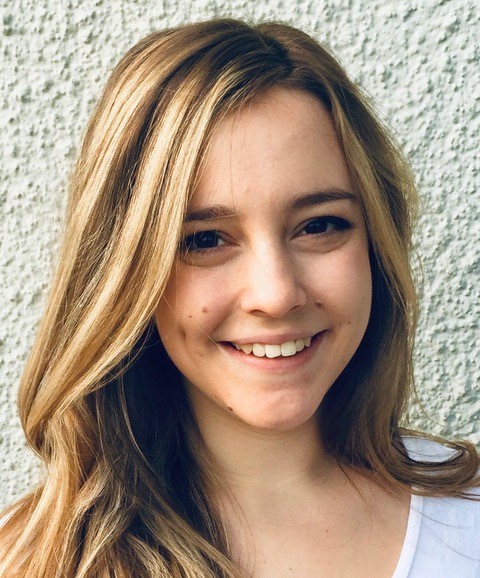 | Selina Dasch Associate member since 2021 My name is Selina Dasch and I am a medical student at the University of Heidelberg with a special interest in internal medicine. During my medical studies I realized the importance of preventive health measures on a population level and developed a fascination for vaccination research – a field which elegantly combines preventive medicine on the individual and population level. The COVID-19 pandemic has once again proven the power of vaccines in preventing disease and death; but their uptake depends on a willingness of the population, which is often wavering. Vaccine hesitancy has become increasingly pressing in recent years and was defined as one of the top 10 threats to global health by the WHO. My dissertation project is part of a bigger mixed-methods study on Covid-19 vaccination willingness in a multi-country setting. By studying COVID-19 vaccination attitudes, preferences and barriers of individuals through qualitative Interviews, I hope to contribute to public health strategies which can fight not only the recent pandemic but also influence vaccination research in general. Project title: Covid-19 vaccination attitudes, preferences and challenges among adults in China and Germany; a qualitative study Supervisor(s): apl. Prof. Dr. Volker Winkler Shannon McMahon MHS PhD Institutional affiliation: Heidelberg Institute of Global Health |
 | Rebecca Schindlmayr Member since 2021 My name is Rebecca Schindlmayr and I am a fifth year medical student at Heidelberg University. For several years, I have taken a great interest in health-related lifestyle factors with a focus on nutrition. Through my participation in lecture series and courses about Global and Planetary Health, I have become fascinated by the concept that relatively simple lifestyle changes can have a large impact, not only on the health of the individual, but also on national health system expenses and even on a planetary scale. In order to contribute to the implementation, allocation and evaluation of lifestyle interventions, my research project will look into determinants of a healthy lifestyle. More specifically, I will investigate the causal impact of gender roles on people’s adherence to a healthy lifestyle, which will be operationalized by means of an a priori lifestyle index. The prevalence of a healthy lifestyle in low- and middle-income countries will be described, followed by identifying the impact of gender roles on a healthy lifestyle, using a quasi-experimental approach. Project title: Healthy lifestyle in 59 low-income and middle-income countries and in 8 European countries: Operationalization, prevalence and causal impact of gender roles Supervisor(s): Jun.-Prof. PD. Dr. Ina Danquah Institutional affiliation: Heidelberg Institute of Global Health |
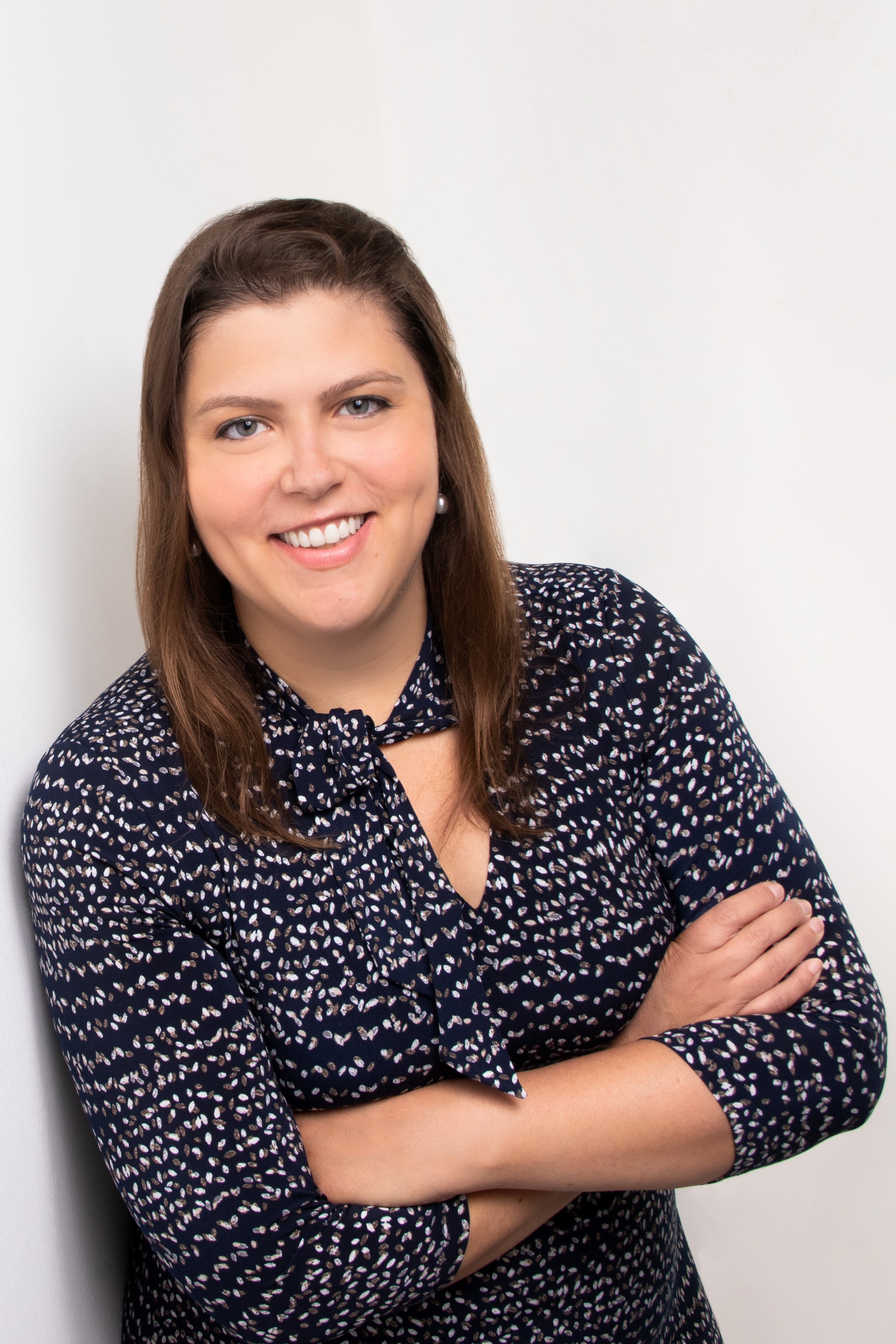 | Aline Frare Mocruha Member since 2021 I am a pharmacist from Sao Paulo (Brazil), holding a master in Health Economics from Heidelberg University. My work experience at pharma industry prepared me in regulatory affairs and quality management specially with emerging countries. My interests are on both diagnostics and pharmaceutical fields to foster clinical research and to support regulators and business based on decision-making models, as well as to further organizational and societal changes. Research question: How to improve health systems performance in low and middle-income countries to reduce the premature deaths addressing the cardiometabolic risk factors with accessible health interventions? Project title: The epidemiology of cardiometabolic diseases in low-and middle-income countries: international population-based analyses Supervisor(s): Prof. Dr. Dr. Till Bärnighausen Dr. Dr. Pascal Geldsetzer Institutional affiliation: Heidelberg Institute of Global Health |
 | Julia Gierth Member since 2021 My name is Julia Gierth and I am a dental student at the University of Heidelberg. The all-encompassing network of global health, spanning from international health policy to local approaches to health care, has always fascinated me. Oral health in particular, and the reciprocal relationship with general health, is a topic that has received limited attention so far, thereby is caries one of the most common and expensive diseases worldwide. My research project, in collaboration with the WHO, aims to use cost-effectiveness analyses to identify the best interventions to reduce the caries burden in low- and middle income countries, to help governments to reach the goal to provide oral health care to their populations. With my doctoral thesis I want to help find sustainable solutions to integrate oral health into universal health coverage in order to provide the best possible medical care for all people. Project title: `Best Buys` to Reduce the Caries Burden in LMICs Supervisor(s): Prof. Dr. Dr. Stefan Listl Institutional affiliation: Heidelberg Institute of Global Health |
 | Lea Tyllack Member since 2021 I am Lea Tyllack, a 5th year medical student in Giessen. I believe that to ensure human health, preserving and restoring planetary health has top priority. Furthermore, health practitioners are among the most trusted professionals, giving us the possibility and responsibility to set a good example. I want to contribute by providing solid evidence to successfully implement climate mitigation measures in the health care context. Specifically, my work aims at reducing overprescribing of unnecessary medication resulting in improved health, cost and emission outcomes. Project title: Health co-benefits of guideline-adherent drug prescription – evaluated in a large University Hospital Supervisor(s): Prof. Dr. Rainer Sauerborn Institutional affiliation: Heidelberg Institute of Global Health |
 | Niaz Mohammad Popal Member since 2021 This is Niaz Mohmmad Popal, a medical doctor (trained as pediatrician) with Afghan nationality. I dd my master in MScIH at Heidelberg Institute of Global Health. I have been involved in quality, health system strengthening and health management since 2003. I would like to do my research in global health because of the need of my country and other LMICs, suffering from poor functioning health systems. Project title: Quality of Healthcare, Its Impacts on Health Outcomes and Health System Strengthening (HSS) in Low- and Middle-Income Countries –LMICs Supervisor(s): Prof. Dr. med. Michael Marx Institutional affiliation: Heidelberg Institute of Global Health |
 | Konstantin Weil Member since 2021 My name is Konstantin Weil and I am a medical student at the University of Gießen. Throughout my studies, I have always had a keen interest in the populational and global context of medicine as a complement to the clinical part. Participating in the Special Track Curriculum Global Health in Gießen, I have had the opportunity to learn about the manifold dimensions the word health has. I am particularly fascinated by the idea that small changes in populations’ diets can in the long run help to improve the overall quality of life and prevent countless diseases. With my dissertation project I hope to be able to contribute to the common effort towards this goal. We will focus on identifying common dietary patterns and discovering correlations with socioeconomic and personal variables. . Project title: Characterizing Dietary Behaviors and their Determinants among Adults in Urban Burkina Faso Supervisor(s): Jun.-Prof. PD. Dr. Ina Danquah, Dr. med. Alina Herrmann Institutional affiliation: Heidelberg Institute of Global Health |
 | Sophie Huhn Member since 2021 My name is Sophie Huhn and I am a medical student of the University of Heidelberg. In my medical studies I have been especially intrigued by the subject of Global Health in the propaedeutic semester for the clinical semesters. An essential part of my life and my education is the development a cosmopolitan view on our world and on different cultures as a global citizen – which is a sine qua non for the field of Global Health and of utmost importance nowadays. “Wearable devices” become more and more practical and widespread in our life. An increasing number of researchers identify the scientific potential and even believe in a “revolution” because of their low costs, easy handling and continuous measurements in the natural environment of the participants. Utilising wearables in the low-resource context in Nouna, Burkina Faso, we want to provide first insights into heart rate and activity levels, which may offer needed insights into morbidity within this population. Project title: Novel direct health measurements using personal wearable devices in the low-resource context of Burkina Faso Supervisor(s): Prof. Dr. Dr. Rainer Sauerborn, Dr. Sandra Barteit Institutional affiliation: Heidelberg Institute of Global Health |
 | Silvan Griesel Member since 2021 In 2014 Barack Obama stated: ”We are the first generation to feel the effect of climate change and the last generation who can do something about it”. This narrative has, in a nutshell, become the main driver for my personal engagement and furthermore motivated me to conduct research in this area. Currently, I am studying medicine at Charité – Universitätsmedizin Berlin and will graduate from medical school in June 2021. My research project aims to provide a practical guide on how health professionals can address climate change in patient counselling and to conceptualize a patient-centered “climate consultation hour”. It does so based on literature research and a qualitative study with health professionals and patients. My focus lies on health counselling which informs about climate change health impacts, advises on adaptation measures, and promotes healthy and climate-friendly lifestyles. With my doctoral thesis I wish to contribute to translating available knowledge about climate change and health into the realities of people’s lives. After my dissertation I plan to work as a clinician scientist and continue to do research on climate change mitigation in the health sector. Project title: Climate consultation hour – addressing climate change in patient counselling: A qualitative study with health professionals and patients Supervisor(s): Jun.-Prof. PD. Dr. Ina Danquah, Dr. med. Alina Herrmann Institutional affiliation: Heidelberg Institute of Global Health (Climate Change, Nutrition and Health (CCNH) Group) |
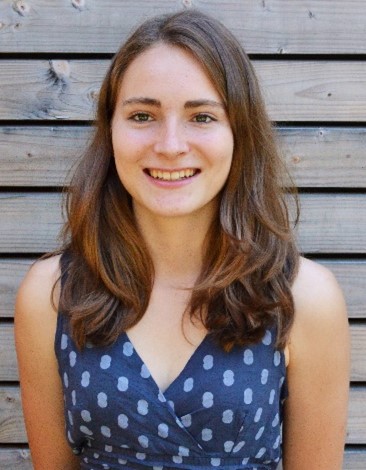 | Hannah Fülbert Member since 2021 My name is Hannah Fülbert and I am a fifth year medical student at the University of Giessen. I have been interested in global issues for a long time but especially the participation in the so-called “SPC Global Health” of my faculty enabled me to deepen my knowledge in many ways and discuss with like-minded people. Particularly planetary health, climate change, non-communicable diseases (NCD) and the role of nutrition in this context have fuelled my interest. To me, climate change is one of the most urgent topics of this century with a vast impact on our health. Simultaneously, NCDs are on the rise all around the world turning into a serious global health burden. Nutrition, as very sensitive human topic, has impact on both issues. My dissertation will focus on perceptions of a sustainable and climate-friendly diet and factors that promote and hinder a weight reduction in adults in Ouagadougou, Burkina Faso, where more than a quarter of all adults was obese in 2014. As Sub-Saharan African country, Burkina Faso is expected to be especially vulnerable towards climate change, therefore I would like to contribute to mitigation on the individual level concerning dietary habits and health. My qualitative study is embedded in a larger research project which aims to implement a locally accepted, climate friendly dietary intervention in the next step. Project title: Perceptions of overweight, sustainable and climate-friendly diets and ways to change dietary behaviour among adults in Ouagadougou, Burkina Faso – a qualitative study Supervisor(s): Jun.-Prof. PD. Dr. Ina Danquah Institutional affiliation: Heidelberg Institute of Global Health (Climate Change, Nutrition and Health (CCNH) Group) |
 | Sneha Bhusari Member since 2021 I am Sneha Bhusari, graduated as a Bachelor of Dental Surgery (BDS) from India in 2009, with a diverse clinical work experience as a Dentist for about 9 years. By completing Master of Science in International Health from Heidelberg University Hospital in 2019, my passion for dentistry and the inclination towards the field of research were aligned. My current professional development goal is to expand the horizons of my knowledge and at the same time be a part of necessary and long due changes in the dental health care industry. With the current scenario of the COVID19 pandemic, I am inclined to learn more about it and help my fellow dentists as well as patients to practice safer ways to deal with the persistent dental needs. For my doctoral topic, I plan to look at the awareness and perception of teledentistry for both dental practitioners and patients and also the role of teledentistry in the scope of COVID-19. The study will also focus on the gaps and could help identify the shortcomings with the application of teledentistry in general and navigate time and expertise of dentists in a more efficient way. Project title: COVID-19 and Teledentistry Supervisor(s): apl. Prof. Dr. Volker Winkler Institutional affiliation: Heidelberg Institute of Global Health |
 | Marwah Al-Zumair Member since 2021 I am Marwah Al-Zumair and I hold a Bachelor’s degree with honours in Medicine and Surgery (MBBS). I was awarded a DAAD scholarship for the completion of my Master’s degree in International Health at the Heidelberg Institute of Global Health. I have two years of field experience in emergency settings as both a physician and a researcher. My applied experience covers different health sectors, including healthcare for displaced populations, integrated health and nutrition projects. I am interested in sexual and reproductive health and women and girls’ empowerment. I am a part of Dr. Lauren Maxwell’s research group at UKHD where I am working to develop a project to assess community midwives’ knowledge, practices, and experiences when encountering women and girls who experience violence in a humanitarian crisis. This multistage project will include in-depth interviews and thematic analysis using a combined deductive and inductive approach. In this study, I will follow best practices for research related to VAWG by identifying positive deviance case studies and creating a map of existing resources for women and girls who experience violence. These inputs will form the basis for an evidence-based intervention to support women and children who experience family and community violence in Yemen. Supervisor(s): Dr. Lauren Maxwell Institutional affiliation: Heidelberg Institute of Global Health |
| 2020 | |
 | Ziyin Xiang Associate member since 2020 I am Ziyin Xiang and I finished my medical studies at the University of Heidelberg in May 2020. I participated in the course ‘Wahlfach Global Health’ and became especially interested in Global Mental Health. According to estimates, up to one in three women in Germany could experience a traumatic birth. One factor that decisively influences whether a childbirth experience is negatively perceived is the behaviour of medical staff (doctors, midwives and nurses) towards the woman. My research focuses on identifying the behaviours of medical staff in obstetrics in Germany which pose as a risk factor for a traumatic birth experience as well as on identifying how the experience could be improved by the medical staff according to the affected women. Project title: Behaviour of medical staff in obstetrics as a risk factor for a traumatic birth experience: A qualitative study with mothers Supervisor(s): Prof. Dr. Dr. Till Bärnighausen, Dr. Stefan Kohler Institutional affiliation: Heidelberg Institute of Global Health |
 | Irja Rzepka Member since 2020 Irja studied medicine at the university of Saarland and finished her studies in may 2020. As she was always interested in other cultures and countries she did internships abroad in Tanzania, India and Zambia. During her stays abroad – as well as during her volunteer work with refugees in Germany in 2015/2016, she became more and more interested in Global Health and in the bigger context of all medical questions. It was her stay in Zambia for her practical year that aroused her interest for Global Health and she was looking for an opportunity to increase her knowledge and to work outside the clinic for the health of many people. Throughout her studies she was interested in mental health and the difficulties patients with mental diseas have to face until today. In her project she will focus on the effectiveness of imaginative stabilization technique in traumatized refugees. Project title: Effects of imaginative stabilization technique in traumatized refugees sheltered in communal placements: a randomized controlled Supervisor(s): Prof. Dr. Christoph Nikendei Institutional affiliation: Psychotraumatologie |
 | Freda Röhr Member since 2020 My name is Freda Röhr and I am studying medicine at the University of Leipzig. Throughout my medical studies I became increasingly aware that social sciences and medicine are closely intertwined. Global Health research intrigued me as a possibility to investigate more broadly determinants shaping people’s health, to better understand health-seeking behaviours and to implement interventions with the objective of seeking for universal health coverage around the world. The Covid-19 pandemic is still spreading all over the world. By October 31st 2020, more than half a million SARS-CoV-2 infections had been registered in Germany with numbers still rising. My dissertation will be part of a project aiming at assessing the effectiveness of the implementation of an active surveillance system for the control of SARS-CoV-2-infections. Within the frame of this project, I will be particularly in charge of exploring what factors influence the decision to take up or reject the offer to test for SARS-CoV-2 among adults being contacted for participation in the trial. Results from this study are expected to complement core findings from the trial, generating key evidence on the implementation of active surveillance systems for the control of SARS-CoV-2-infections. Project title: What are the factors influencing decisions for or against self-testing for SARS-CoV-2 among adults in the Rhein-Neckar-Region, Germany? A mixed-method study Supervisor(s): Dr. Aurélia Souares, Prof. Dr. Dr. Till Bärnighausen Institutional affiliation: Heidelberg Institute of Global Health |
 | Ankit Rastogi Member since 2020 My name is Ankit and I am a 5th year medical student at the University of Heidelberg. During my studies I realised that in order for a health care system to be efficient, work in the field of medicine should not only start with the treatment of the ill but also much earlier, at the stage of prevention. Consequently, I believe that besides finding medical solutions, a more systematic approach is also needed when trying to tackle health issues across the world, which is the very essence of global health. As a person of Indian origin, I have witnessed the fragility of the Indian health care system. Therefore, I am highly motivated to work on a project which tries to capture the prevalence of a major risk factor for the burden of disease in India, namely alcohol, and hence pave the way for well-directed prevention strategies in the future. Project title: Alcohol consumption in India’s states: a systematic review and modelling study for sub-national estimates of drinking patterns Supervisor(s): PD Dr. Olaf Horstick, Dr. Charlotte Probst Institutional affiliation: Heidelberg Institute of Global Health |
 | Claudia Quitmann Member since 2020 I am a medical student from the RWTH Aachen University and passed the second state examination in November 2019. As climate change and sustainability have become increasingly important for me personally, I started to focus on the link between health – my academic background – and climate change – one of the most pressing global issues of our time. I gained experience in the field as a student assistant at the Institut für Geschichte, Theorie und Ethik der Medizin (RWTH Aachen) and as an intern at the Climate Service Center Germany (GERICS). My doctoral project aims at improving climate change mitigation strategies for hospitals, particularly for the University Hospital Heidelberg. I will estimate the greenhouse gas emissions of the University Hospital Heidelberg and conduct in-depth interviews with clinical and administrative stakeholders at the hospital to identify hindering and enabling factors for successful implementation of mitigation measures. Project title: Reducing Greenhouse Gas Emissions in a Large Medical Centre: Status quo and stakeholders’ perspectives Supervisor(s): Prof. Dr. Dr. Rainer Sauerborn, Dr. Alina Herrmann Institutional affiliation: Heidelberg Institute of Global Health |
 | Stephanie Petzold Member since 2020 I am Stephanie Petzold and in my 3th year as a medical student at the University of Heidelberg. I was always interested in Public Health and did already my Masters degree in Public Health at the University of Bremen. I am glad to have the opportunity to combine my knowledge and work on medical questions in the broader picture. My research will focus on the challenges people face in the diagnosis and classification of dengue, especially in resource-limited environments in Southeast Asia. The incidence of dengue has grown dramatically around the world in recent decades and through cases that are misdiagnosed as other febrile illnesses, the global burden of the disease is uncertain. The findings aim to prevent unnecessary hospitalization and harmonize the available dengue guidelines. Project title: Diagnosis and classification of dengue in resource-limited environments in Southeast Asia Supervisor(s): Dr. Dr. Thomas Jaenisch Institutional affiliation: Center for Infectiology, Department for Clinical Tropical Medicine, Heidelberg Heidelberg Institute of Global Health |
 | Ahmad Siyar Noormal Member since 2020 Ahmad Siyar Noormal from Afghanistan is an honorary graduate of Kabul Medical University who graduated from medical school in 2014. Siyar has been awarded DAAD scholarship and holds a Master’s degree in International Health from the Heidelberg Institute of Global Health 2019. Siyar Noormal has 4 years of practical experience in different sectors of public health and clinic in cooperation with national and international organizations in Afghanistan. He served as a school health consultant for UNFPA, Chief Editor of Roghtia Magazine, and manager at Health Information Center of Afghanistan’s Ministry of Public Health. He has also served as a public health and epidemiology lecturer in different medical universities of Afghanistan. He has attended and facilitated several national and international conferences and events related to public health. He authored the book of Epidemiology and Biostatistics in 2020 and holds lifetime membership of The John Snow Society at London School of Hygiene & Tropical Medicine. His doctoral project mainly focuses on the epidemiology of non-communicable diseases (NCDs) in Afghanistan. He is determined to optimize his research as empirical evidence to improve the current health status in Afghanistan. He believes that NCDs are an emerging health issue in Afghanistan, for that reason, he wants to pursue his career in that particular field. Project title: Nutritional and behavioral risk factors for Non-Communicable Diseases in Afghanistan Supervisor(s): PD Dr. Peter Dambach, apl. Prof. Dr. Volker Winkler Institutional affiliation: Heidelberg Institute of Global Health |
 | Nicole Mauer Member since 2020 After graduating from Medical School in Milan, Italy, Nicole’s interest in Public Health led her to take up a traineeship at the Directorate General for Health and Food Safety at the European Commission. This experience allowed her to gain a substantive insight into the work of international organisations and cemented her interest in health policy and determinants of health in European populations. She subsequently worked on the Global Health Protection Programme at the Robert Koch Institute. Her research interests focus on health inequalities, the environmental and socioeconomic determinants of non-communicable diseases and stem from her clinical experience working with diabetic patients throughout Medical School and from working in Public Health institutions at the national and European level. She will explore these topics in her doctoral thesis in the context of South Africa. Project title: Continuity of hypertension and diabetes care in LMICs: exploring barriers and enablers to cascade-of-care progression Supervisor(s): Dr. Nikkil Sudharsanan, apl. Prof. Dr. Volker Winkler, Prof. Dr. Dr. Till Bärnighausen Institutional affiliation: Heidelberg Institute of Global Health |
 | Anna Lindblad Member since 2020 My name is Anna Lindblad and I recently received the MSc in Medicine at Sahlgrenska Academy University of Gothenburg in Sweden. Last Spring, I pursued my MSc degree project within global health and epidemiology under supervision of apl. Prof. Dr. Volker Winkler. During my years as a medical student, my interest in lifestyle related health issues and the impact of socioeconomic and migration factors on health and disease has grown. I want to deepen my knowledge and contribute to further understanding how migration background influences children’s health. Based on the European IDEFICS/I.Family cohort, we want to investigate if the prevalence of metabolic disturbances including overweight and obesity differs between children of migrant families in comparison to other children in Europe. Project title: Prevalence of metabolic disturbances including overweight and obesity among children of migrant families in comparison to other children in Europe Supervisor(s): apl. Prof. Dr. Volker Winkler, Prof. Lauren Lissner (Gothenburg University), assoc. Prof. Kirsten Mehlig (Gothenburg University), Prof. Dr. Wolfgang Ahrens (Leibniz Institute for Prevention Research and Epidemiology – BIPS) Institutional affiliation: Heidelberg Institute of Global Health |
 | Kyra Lilier Member since 2020 My name is Kyra Lilier and I am a fourth year medical student at the University of Münster (Germany) with a passion for Global Health. Volunteering in a hospital in Zimbabwe fuelled my enthusiasm to explore this field further in an elective course on Humanitarian Aid and by engaging in a students’ initiative to promote Global Health at universities worldwide. Through my interdisciplinary commitment over the last year, I developed a new focus on Planetary Health, dedicated to target Climate Change as the major Global Health crisis of the 21st century. My research aims to contribute to understanding the health consequences of Climate Change by conducting a qualitative study in Bangladesh, a country already suffering from changing climate conditions. I will be describing the physical and mental health experiences of populations strongly affected by climate-induced migration and thus giving these often forgotten ‘left-behinds’ a voice. Project title: Influences of climate-induced migration on physical and mental health of the ‘left-behind’ population: A qualitative study in rural Bhola, Bangladesh Supervisor(s): Prof. Dr. Dr. Rainer Sauerborn, Kate Bärnighausen Institutional affiliation: Heidelberg Institute of Global Health |
 | Anna-Katharina Heuschen Member since 2020 My name is Anna-Katharina Heuschen. I am a medical student at the Albert-Ludwigs-University of Freiburg. Originally I am from Belgium and grew up in Luxembourg. I am very interested in human rights as well as cultures, politics and natural sciences. This guided me to projects and internships in Europe and Africa, social commitment in different medical and interdisciplinary organizations and finally to the decision of conducting my doctoral thesis project in the research field of Global Health. My aim is to gain more information about public health relevant associations of COVID-19 and malaria in sub-Saharan Africa. Malaria is up to present one of the greatest causes of morbidity and mortality globally, it affects especially children under the age of five in LMICs. The ongoing COVID-19 pandemic presents a huge stressor for vulnerable health systems and risks to worsen the social inequality. For this reason, further research about the secondary effects of the coronavirus outbreak are important to leave no one behind. Project title: Public health relevant associations of COVID-19/SARS-CoV-2 and malaria in sub-Saharan Africa Supervisor(s): Prof. Dr. med. Olaf Müller Institutional affiliation: Heidelberg Institute of Global Health |
 | Lea-Sophie Hansen Member since 2020 I am a medical student at the University of Heidelberg since 2017. The topic of climate change has always been very dear to me personally, through various periods and internships abroad the urgency of a collective curb of future challenges has become increasingly aware to me in the recent years. I believe humanity is facing a critical juncture for future approaches to climate change, thus I am dedicated to support adaptative capacities regarding global health challenges posed by climate change. My Dr. med. thesis will comprise a qualitative study in western Kenya to gather in-depth learnings of facilitators and barriers to home gardening implementation and nutrition counselling. The community-based research aims to empower disadvantaged population groups and thus reduce inequality. Through the implementations of, home-gardening, as a promising adaptation strategy, and nutrition counselling, as empowerment of self-efficacy, I intend to create added value through constructive and reflective research. Project title: Home gardening and nutrition counselling in rural Kenya: A qualitative study from local perspectives Supervisor(s): PD Dr. Ina Danquah Institutional affiliation: Heidelberg Institute of Global Health |
 | Hannah Goymann Member since 2020 My name is Hannah and I am a fifth-year medical student at the University of Regensburg, Germany. I lived one year in Cameroon and, during my studies, already did several medical internships in Tanzania and India. My experiences there, especially concerning women rights and basic health care, raised my interest in Global Health. In my opinion, gender equality and health are one of the most important factors for improving living conditions worldwide. The aim of my thesis is to identify the role community leaders play in community-based HIV prevention, focusing on HIV Pre-exposure Prophylaxis (PrEP) in Eswatini. I want to understand the potential of community leaders to support the implementation and promotion of PrEP. Furthermore, I want to describe the methods and recommendations proposed by the community leaders, to inform the community about PrEP and develop a theoretical framework to support future community education and implementation strategies. Project title: Community leader’s perspectives regarding the promotion of Pre-exposure Prophylaxis for HIV Prevention (PrEP); recommendations and methods in Eswatini Supervisor(s): Prof. Dr. Albrecht Jahn, Kate Bärnighausen, Prof. Dr. Dr. Till Bärnighausen Institutional affiliation: Heidelberg Institute of Global Health |
 | Franca Conradis-Jansen Member since 2020 I am Franca from Duisburg, I studied Medicine in Göttingen (Germany) and Cagliari (Italy), worked for 1,5 years in Anesthesia and Internal Medicine and completed the diploma course in Tropical Medicine last year. My interest in Public and Global Health developed on the one hand through several internships abroad (Italy, Indonesia, Peru), on the other hand through clinical work. I realized that I would rather use my (wo)man power preventing diseases than fighting their late stages. My research project, run by MORU (Mahidol Oxford Research Unit), offers me a great opportunity to gain more experience in the tropical field of global health, prevention and research. My doctoral thesis is focused on the implementation of a clinical trial on malaria prophylaxis for forest workers in Cambodia. Working with this malaria risk group is challenging, partly because of the ethnic and linguistic heterogeneity of the target group, partly because of the often illegal nature of forestry work. Project title: Antimalarial prophylaxis for forest workers in Cambodia – Implementation of a randomized controlled trial Supervisor(s): Prof. Dr. med. Olaf Müller Institutional affiliation: Heidelberg Institute of Global Health |
| 2019 | |
 | Simona Skandro Member since 2019 During my medical studies in the University Hospital of Heidelberg I was able to acquire specialized knowledge about medicine and the German health care system. However I have always been interested in seeing how medical care in other parts of the world is provided and used the chance to do internships for example in Togo, Turkey and Serbia. The different challenges that each country has to face and their way of dealing with them, aroused my interest in Global Health. My research will focus on Intimate Partner Violence in Angola and specifically on the role of family composition. Are grandparents protective when it comes to violence at home and what other protective factors are there? I am glad to have the chance to deepen my knowledge about Angola and family structures there – which is a still unknown country for me. Project title: Intimate Partner Violence in Angola Supervisor(s): Prof. Dr. Dr. Till Bärnighausen Institutional affiliation: Heidelberg Institute of Global Health |
 | Maximilian Schüßler Member since 2019 Maximilian is a medical student at the University of Heidelberg, and fascinated by challenges at the interface of healthcare, technology, and public policy. His medical background includes five years of medical studies at Heidelberg and the Paris Descartes Medical School, and research in oncology and at the intersection of drug discovery, stem cell technology and medicinal chemistry at Oxford. During his research project at the Graduate School of Global Health, Maximilian focuses on the potential of web-based interventions and digital health to address unmet health needs in low- and middle-income countries and the European Union. He is particularly keen to investigate how precision public health can help overcome entrenched health gaps and social inequalities on a global scale. Relatedly, he investigates how people who are in need of disease prevention and treatment and are currently not aware of their disease could benefit from a contact with the health system. Maximilian graduated in Public Policy from the Blavatnik School of Government at the University of Oxford. During his Master of Public Policy, he focused on barriers for the implementation of artificial intelligence (AI) in the National Health Service (NHS). Moreover, he investigated the dynamics of large private-public partnerships between the tech industry and hospital management. Project title: Exploring Internet Connectivity, the Potential of Web-Based Technologies and Precision Public Health to Address Unmet Health Needs for Non-Communicable Disease. Supervisor(s): Prof. Dr. Dr. Till Bärnighausen Institutional affiliation: Heidelberg Institute of Global Health |
 | Elena Schnieders Member since 2019 Elena Schnieders is a 4th year medical student at Heidelberg University. She has a passion for traveling and is curious to encounter many different ways of living. Since health plays a significant role in people’s lives, she has come across various health systems which has sparked her interest in Global Health. Her research project will be conducted in Malawi and Zambia and will compare an alternative diagnostic tool for COPD with a lung functioning test, the gold standard. Project title: Development of a practical diagnostic tool for COPD in Malawi and Zambia Supervisor(s): PD Dr. Valerie Louis, Dr. Florian Neuhann, Dr. Andreas Deckert Institutional affiliation: Heidelberg Institute of Global Health |
 | Eleonora Nushi Member since 2019 Eleonora Nushi grew up in Tirana, Albania, and studied medicine at the University of Heidelberg. During her studies she often went back to her home country to gather work experience and directly experienced the challenges that families in remote parts of the country often face. Currently, she is working on a project for the development of a pediatric digital platform, supported by the Bundesministerium für Bildung und Forschung. The platform will help parents in Germany to care for their acutely ill children during and after the working hours of pediatricians. Eleonora believes that digital health will help making good medicine available to all families, no matter where they live. Project title: Digital platform-based healthcare for children and adolescents in Germany Supervisor(s): PD Dr. med. Johannes Pfeil Institutional affiliation: Heidelberg Institute of Global Health |
 | Felicia Margono Member since 2019 Felicia Margono was born in Indonesia, did her A-Levels in Singapore, and is currently a fifth-year medical student in Heidelberg. She has moved constantly since she was a child and her experiences piqued her interest in other cultures. She believes culture and behaviour play a crucial role in shaping healthcare outcomes and her project involves evaluating the beliefs and experiences of Tanzanian nursing students regarding snakebite, which has been classified as a neglected tropical disease (NTD) in 2017. She hopes to use her research to improve the data available in Tanzania and to determine the focus and scope of educational interventions for snakebite prevention and treatment. Project title: Evaluating the beliefs of nursing students regarding snakebite injuries and its treatment in rural Tanzania Supervisor(s): Prof. Dr. Dr. Till Bärnighausen, Dr. Michael L. Wilson Institutional affiliation: Heidelberg Institute of Global Health |
 | Louis Jansen Member since 2019 During my medical education at the medical schools of Heidelberg (Ruprecht-Karls-University) and Pamplona (Universidad de Navarra) I got the chance to experience medicine in a lot of its facets. After completing my apprenticeship as a paramedic, I have gained insight into domains such as teaching anatomy, working in a private practice, leading a student tutor group, or getting to know a new healthcare system. The interactions between the countless medical and non-medical subjects is what fascinates me the most. I think that multi-disciplinary approaches and tight collaborations between different fields will undoubtably shape and improve present and future healthcare. I am glad to have the chance to examine such a multidisciplinary approach to reduce interpersonal violence in Dar es Salaam, Tanzania. Project title: Characterization of at-risk young males in Dar es Salaam, Tanzania: behavioural and socioeconomic correlates of health, injury and violence Supervisor(s): Prof. Dr. Dr. Till Bärnighausen Institutional affiliation: Heidelberg Institute of Global Health |
 | Christopher Hertler Member since 2019 Christopher is a 6th year medical student at the University of Heidelberg. During his medical education, he discovered his interest in Global Health and was looking for an opportunity to distance himself from clinical routine to gain a better understanding of healthcare systems worldwide. Christopher is part of the Health Economics and Health Financing research group. In his study, he will assess the impact of Performance-based financing on contraceptive supply and unmet need for family planning in Burkina Faso using a Difference-in-Difference approach and interrupted time-series analysis. Project title: Can Performance-based financing improve contraceptive supply and close gaps in unmet need for family planning? Evidence from an impact evaluation in Burkina Faso Supervisor(s): Prof. Dr. Manuela De Allegri , Dr. Stephan Brenner Institutional affiliation: Heidelberg Institute of Global Health |
 | Alina Greis Member since 2019 Alina Greis is a final year medical student at Heidelberg University. She is interested in sexual and reproductive health, women’s empowerment and medical anthropology. After several academic and professional stays abroad, her research led her to Burkina Faso, where she studied the health status of adolescents in a rural region. During her stay, she became increasingly interested in female genital cutting, a tradition that is deeply entrenched in the local culture. More than 200 girls and women worldwide have undergone FGC and despite nearly 30 years of efforts to curb the practice, it continues to be carried out. Her research focuses on attitudes towards FGC among adolescents in rural Burkina Faso and their lived realities. She examines underlying beliefs, perceived benefits or risks and factors associated with FGC in order to better understand the dynamics of continuation and cessation of the practice and to identify possible targets for future interventions. Project title: Attitudes towards female genital cutting among adolescents in rural Burkina Faso Supervisor(s): Prof. Dr. Dr. Till Bärnighausen, Dr. Guy Harling Institutional affiliation: Heidelberg Institute of Global Health |
 | Johannes Boucsein Member since 2019 Johannes Boucsein graduated from Medical School in 2017. During his medical training, he studied at the Universidad Nacional de Colombia in Bogotá for a semester. It were these experiences that raised his curiosity for global healthcare. His personal interest lies in politics and economy as well as health education, for which he draws experience from having helped to establish a market-leading eHealth company. His doctoral thesis seeks to identify risk factors for bleeding complications, which are a hallmark of Dengue virus infection. The study seeks to assess the current knowledge through a systematic review and meta-analysis. It also aims to evaluate primary data of three prospective cohort studies conducted under the leadership of Heidelberg University. With an estimated 400 million infected each year, improving prediction of complications and disease severity will have an important impact on treatment and patient outcome. Project title: Bleeding Complications in Dengue Supervisor(s): Dr. Dr. Thomas Jaenisch, PD Dr. Olaf Horstick Institutional affiliation: Center for Infectiology, Department for Clinical Tropical Medicine, Heidelberg Heidelberg Institute of Global Health |
 | Khatia Antia Associate member until August 2019 (since then Dr. sc. hum.) Khatia Antia has been awarded an academic degree of a Medical Doctor (MD) from The Tbilisi State Medical University and holds Master’s degree of Healthcare Management from The University of Georgia. She has completed several modules of MPH (Master in Public Health) course at the University of Chester, UK, as well as Master level course of ‘International Community Health’ at the University of Oslo, Norway. Additionally, Khatia has experience of working in Hospitals, Medical Insurance Companies, Healthcare Association and Universities in Georgia. She took particular interest in issues of social and healthcare policy, such as reducing inequalities in health, improving mental and child health, migrant health and the health of marginalized population. The main objective of her study is the identification of feasible, effective and acceptable strategies to address the needs of children affected by parental migration in rural Georgia, to mitigate and prevent the negative impacts of migratory separation on children. Project title: Temporary Labor migration and left-behind children – Effects of Labor Migration on Children in Rural Georgia Supervisor(s): apl. Prof. Dr. Volker Winkler Institutional affiliation: Heidelberg Institute of Global Health |
| 2018 | |
 | Berenike Thoma Member since 2018 Berenike is a fifth year medical student at the University of Heidelberg. Her interest in international health care systems, disease controls and policy approaches grew with multiple international practical experiences in low- and middle-income countries (LMICs). This encouraged her to focus my doctorate on education and mental health in respective countries. In her study, she will assess the impact of offsprings‘ educational attainment on parental mental health and well-being in a range of socio-economic settings globally. With a mixed-method approach, she will identify the quantative relationship as well as determining pathways between children’s educational resources and parental mental health. The findings aim to provide critical insights to strengthen the prevention of mental disorders and contribute to policy interventions and the inclusion of mental health, particularly in LMICs. Project title: Offspring‘s education and parental mental health Supervisor(s): Prof. Dr. Dr. Till Bärnighausen, Dr. Dr. Jan-Walter De Neve Institutional affiliation: Heidelberg Institute of Global Health |
 | Felix Teufel Associate member since 2018 Felix is a final-year medical student enthusiastic about the prevention, screening and care of non-communicable diseases in low- and middle-income countries (LMICs). Specifically, he investigates how an improved understanding of the determinants of cardiometabolic risk factors and diseases might inform comprehensive prevention policies and primary health care reforms. He previously gathered clinical experiences in Eswatini and South Africa and served as co-founder and coordinator of Wissenshunger, a nationwide health promotion project of the German Medical Students’ Association. For his projects at the Graduate School of Global Health, Felix collaborated with researchers from Heidelberg University and the Harvard T.H. Chan School of Public Health, for example through the Harvard GHP Project on Access to Care for Cardiometabolic Diseases (HPACC). Examples of his work encompass a large multinational study analysing the association of body-mass index and diabetes risk across 57 LMICs and a nationally representative instrumental variable analysis of the effect of having children on blood pressure among more than 440.000 mothers in India. On the road ahead, Felix is determined to continue his research on cardiometabolic diseases whilst broadening his research scope towards global mental health topics. Project title: Determinants of cardiovascular and metabolic risk factors and diseases in low- and middle-income countries Supervisor(s): Prof. Dr. Dr. Till Bärnighausen, Dr. Dr. Jan-Walter De Neve Institutional affiliation: Heidelberg Institute of Global Health |
 | Frithjof Sy Member since 2018 After studying physics in Munich I could broaden my medical knowledge at the Heidelberg medical school, here I am currently a fifth-year medical student. Work in central Africa triggered my special interest in infectious diseases of low- and middle-income countries and their links to cancer. With experience in ODE (ordinary differential equation) based mathematical modeling of cancer growth, I like to be part of the investigation of HPV-spread in Zambia and Malawi and its connections to the extraordinarily high incidence of cervical cancer in these countries. The Heidelberg Graduate School of Global Health offers a unique opportunity to combine my interests hopefully funnelling them into a helpful survey. Project title: Investigating contributing factors to the spread of HPV in Zambia and Malawi, examining the feasibility for integrating these factors in a mathematical model and computer simulation. Supervisor(s): Dr. Andreas Deckert, Prof. Dr. Dr. Till Bärnighausen Institutional affiliation: Heidelberg Institute of Global Health |
 | Laura-Marie Stieglitz Associate member since 2018 I am currently in my sixth year of medical school. During the past years I got the impression that the greater part of medical research aims to improve health care that is already at a high level and only affordable for a few of the world´s population. Therefore, when I had my first lecture on public health, I was immediately drawn to this subject. Research in global health is necessary in order to make health care accessible to everyone. My second interest lies in mental health and therefore, I welcome the opportunity to combine this area with global health in my doctoral thesis. I am excited to contribute to research on global mental health, a field that has lacked attention until recently, by working on depression in a low-income country. Project title: Depression and comorbidities among the aging population in Ukonga Ward, Tanzania Supervisor(s): Prof. Dr. Dr. Till Bärnighausen, Dr. Stefan Kohler Institutional affiliation: Heidelberg Institute of Global Health |
 | Leon Schütze Associate member since 2018 With my 4th year of medical school completed and my tenure as head of the student’s association at the medical faculty Mannheim also ending this fall, I was looking for a new challenge. The MD in global health is just that. Health economics and health systems worldwide always interested me and combined with my fascination of the African continent this makes the project in Tanzania the perfect opportunity to further broaden my knowledge and attain new skills. I hope that my work will provide results that can have a real impact on any future implementation of digital solutions in health systems. Project title: Facilitators and barriers to the introduction of digital solutions for active purchasing in health: A mixed methods case study of the Redesigned Community Health Fund in Tanzania Supervisor(s): Prof. Dr. Manuela De Allegri Institutional affiliation: Heidelberg Institute of Global Health, Health Economics and Health Financing |
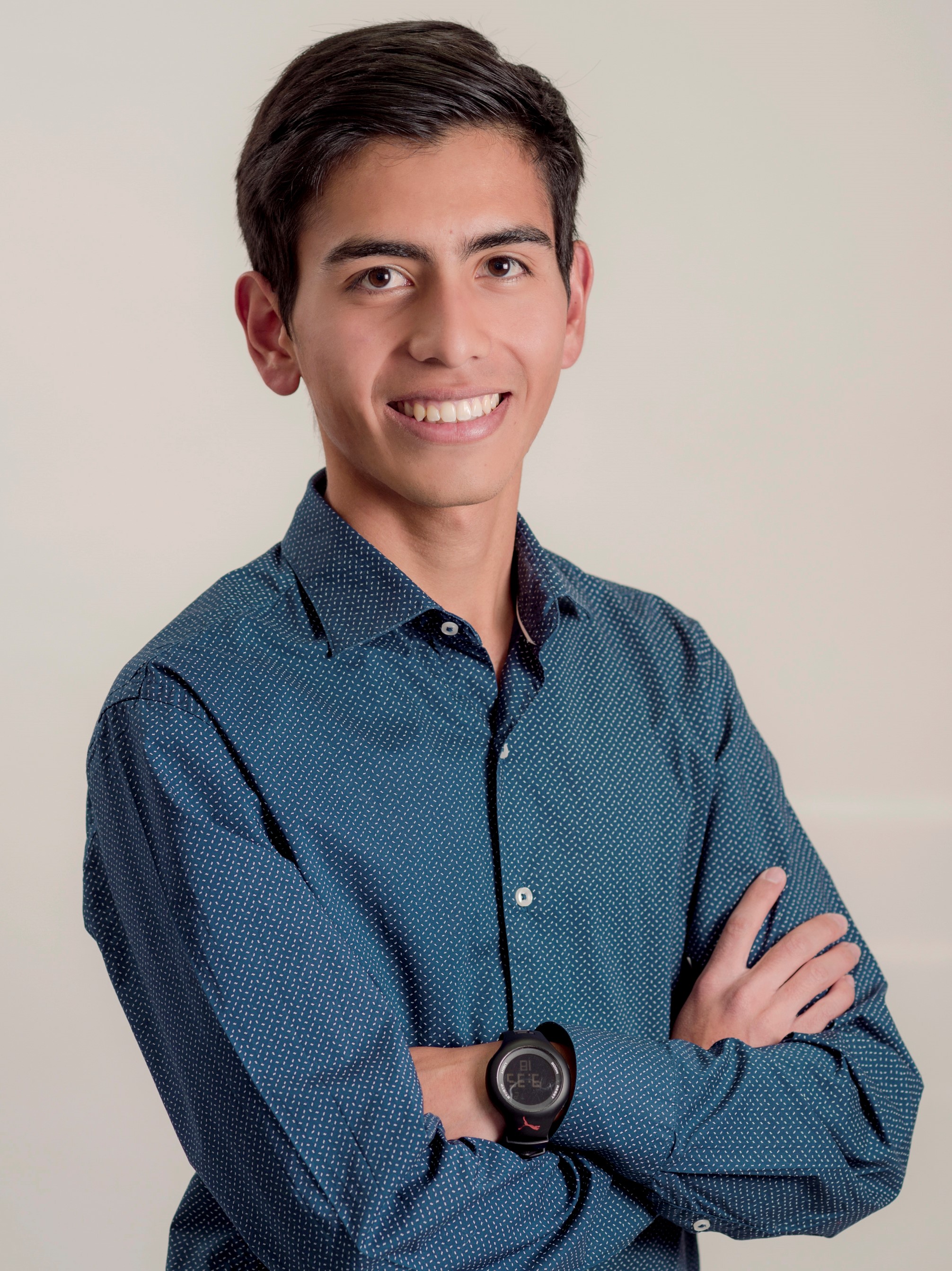 | Eduardo Ramos Member since 2018 My name is Eduardo Ramos Rosas and I come from Peru. After finishing the IB programme in my homeland I decided to start studying medicine here in Heidelberg to access a high-quality education. As my research project I will be analyzing and comparing maternal care quality and utilization in Peru among the three main health insurances Peruvian woman can access. To take a deeper view into this reality and understand the extend of health care differences in a low-income country motivates me to be part of this programme. Project title: Inequalities in maternal care and insurance status in Peru Supervisor(s): Prof. Dr. Manuela De Allegri Institutional affiliation: Heidelberg Institute of Global Health, Health Economics and Health Financing |
 | Nadine Müller Associate member since 2018 Nadine is working as a resident at the Department for Infectious Diseases and Pulmonary Medicine at Charité – Universitätsmedizin Berlin. During her free time Nadine is a volunteer and member of the board at Doctors for Madagascar (Ärzte für Madagaskar e.V.). She is involved in conceptualization, implementation and follow-up of projects on maternal and child health in the rural south of the country. In that capacity she is regularly challenged with global health issues on a micro- and macro-level. Fueled by her curiosity to better understand on how the digital revolution and spread of mobile technologies may contribute to reduce inequalities in low- and middle-income countries, she is currently doing her doctoral thesis on a digital health research project in Madagascar. Project title: Saving through technology: Design study to identify opportunities and challenges of a mobile phone-based savings platform for healthcare in Madagascar Supervisor(s): Prof. Dr. Dr. Till Bärnighausen, Dr. Dr. Jan-Walter De Neve Institutional affiliation: Heidelberg Institute of Global Health Charité – Universitätsmedizin Berlin, Department for Infectious Diseases and Pulmonary Medicine |
 | Amir Mohsenpour Member since 2018 Working as a medical professional, one needs a diverse set of skills and rich knowledge base to be able to fulfill all roles essential to protect and promote health in society. Throughout medical school I have had the chance to gain insight into civil society engagement and advocacy, project management and peer-education. With this doctorate programm I intend to learn critical research skills, both its comprehension as well as application. Project title: Contextual Effect of Housing Quality on Asylum Seekers’ Health – a cross-sectional study in a German federal state Supervisor(s): Prof. Dr. med. Kayvan Bozorgmehr Institutional affiliation: University Hospital Heidelberg, Department of General Practice and Health Services Research |
 | Jan Ole Ludwig Associate member since 2018 Jan Ole is a medical student at the Medical Faculty Heidelberg and has recently finished his 5th year. After completing his clinical education he was looking for a possibility to step back from clinical routine and catch a sight of the bigger picture of health care. The research for his thesis with the Heidelberg Institute of Global Health offered him just that. Early in his medical studies he developed a conviction, that primary prevention is and will be the most crucial value in future medicine. That is why he is happy to work on a project investigating health outcomes of educational reforms and is highly motivated to extend his research in the filed of trans-generational human capital spill-overs. Project title: Causal Effect of Children’s Secondary Education on Parental Old-Age Survival: Quasi-Experimental Evidence from Botswana Supervisor(s): Dr. Dr. Jan-Walter De Neve Institutional affiliation: Heidelberg Institute of Global Health |
 | Etienne Lacroze Associate member since 2018 Etienne Lacroze grew up in Frankfurt am Main, studied at the Charité Berlin and at Sorbonne Paris Cité and is now completing his practical year in Madagascar and Kenya. During his first stay on a training mission in the southern Madagascar, Etienne experienced the catastrophic effects of a non-existent health insurance and inadequate health policy. Since 2018 he has been a member of the board of the NGO “Doctors for Madagascar”, which is currently implementing a Mobile Health Wallet in Madagascar as part of the mTOMADY project. He is particularly interested in health financing, mobile health and performance measurement. His research will focus on the acceptability, perception and performance of the new mobile phone based payment tool for pregnancy-related healthcare. In his free time he is a passionate classical pianist with a preference to chamber music. Project title: Qualitative and quantitative Research on the acceptability, perception and performance of a new mobile phone based payment tool for pregnancy-related healthcare in the region of Analamanga, Madagascar Supervisor(s): Prof. Dr. Dr. Till Bärnighausen, Dr. Dr. Jan-Walter De Neve Institutional affiliation: Heidelberg Institute of Global Health |
 | Philip Kitchen Associate member since 2018 Growing up in Zambia I was exposed to the inequalities and challenges which the population of a low-income country has to face. As a medical student I was minded to follow my interest in the field of global health. Through various lectures and courses at the Institute of Global Health I was able to deepen my knowledge in this field and got the opportunity to write my doctoral thesis about HIV testing in Eswatini. Specifically I’ll be looking into factors that helped or hindered the broad expansion of HIV testing in this country and if their success can be replicated in other sub-Saharan countries suffering under the HIV epidemic. Project title: Expansion of HIV Testing in Eswatini, Factors Underpinning Success Supervisor(s): Prof. Dr. Dr. Till Bärnighausen Institutional affiliation: Heidelberg Institute of Global Health |
